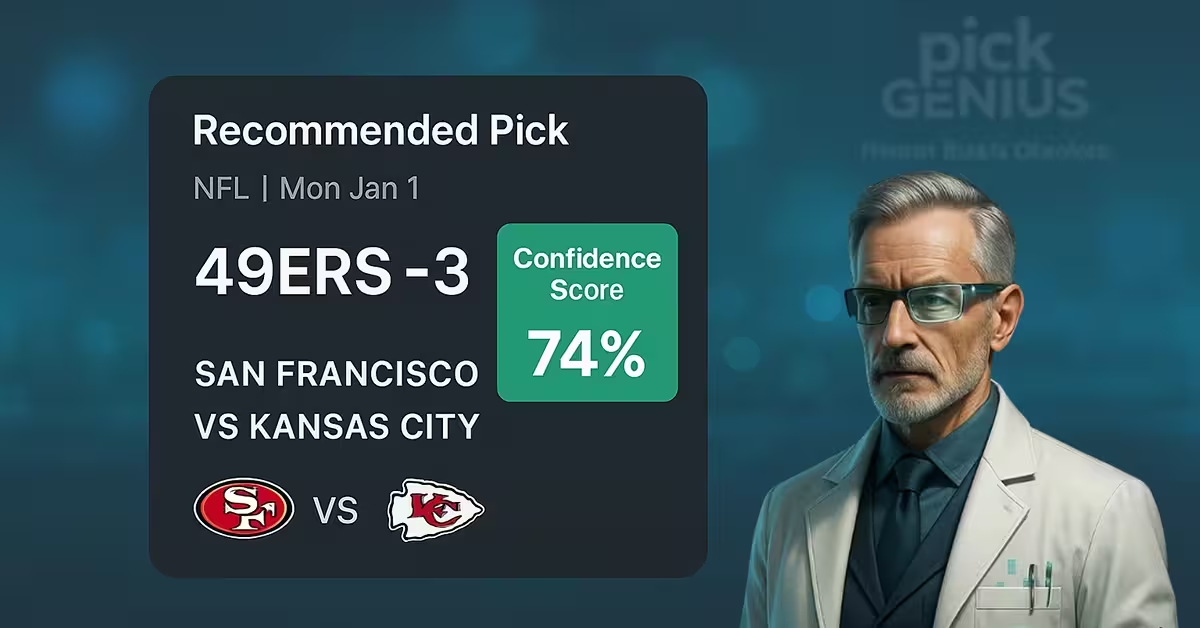Buccaneers vs. Texans Preview and Prediction for September 15, 2025)
Week 2 of Monday Night Football is here, and who’s on the schedule? That would be the Tampa Bay Buccaneers vs. the Houston Texans.
The Texans are playing host to the Bucs at the NRG Stadium in Houston, and kickoff is at 8:15 pm ET.
The Bucs beat the Atlanta Falcons in Week 1, and they want to bump that number up to 2-0 with a road win. The Texans are 0-1 after losing to the LA Rams in their first regular-season game.
Despite being listed as road underdogs against the defending four-time AFC South champions, the Buccaneers have gotten a lot of backing from national analysts going into the prime-time game!
The Texans want to prove that their young quarterback and defense can back it up in a primetime slot. And the Bucs are out to show the world that their Week 1 win wasn’t a one-off and that Baker Mayfield has total command of the offense.
What do we think? Keep reading for the game details, the latest betting odds, a Week 1 recap, main storylines and matchups we’re watching, team stats comparisons, our picks for the three best bets, and our final score prediction!
Game Details
- Matchup: Tampa Bay Buccaneers (1-0) vs. Houston Texans (0-1)
- Game Details: Monday, September 15 at 8:15 pm ET
- Location: NRG Stadium, Houston, Texas
- How To Watch: Monday Night Football airs on both ESPN and ABC
Betting Odds
Monday Night Football is prime betting time! Look below for the current odds and lines courtesy of DraftKings, but remember to check them closer to game time bc they could move!
| Team | Spread | Moneyline | Total |
|---|---|---|---|
Buccaneers | +2.5 (-112) | +114 | Over 42.5 (-110) |
Texans | -2.5 (-108) | -135 | Under 42.5 (-110) |
Week 1 Recap
Week 1 was good for the Bucs; they left Atlanta with a win. Houston lost what looked like it could’ve been a winnable game to the Rams.

Tampa Bay Buccaneers
- Tampa Bay beat Atlanta 23–20 on the road.
- Baker Mayfield ran a late two-minute drill super cleanly and finished the night off with the game-winning drive.
- Rookie wideout Emeka Egbuka caught two touchdowns and gave the Bucs a downfield target that Atlanta never contained.
- The offensive line allowed constant pressure, the rushing attack stalled out, and Mayfield had to get the ball out quickly to avoid getting sacked.

Houston Texans
- Houston lost 14–9 to the Rams; they didn’t score one TD.
- C.J. Stroud threw underneath most of the game, and he missed chances downfield without Christian Kirk on the field.
- Nick Chubb ripped off a couple of really strong runs, but holding calls erased first downs and killed any progress.
- The defense bottled up the Rams for most of the game, but couldn’t finish drives; they gave up third-down conversions that extended possessions.
- The Texans came away with just field goals; they were undone by penalties, red-zone failures, and a depleted wide receiver group.
Main Storylines & Matchups
Tampa Bay is 1–0 and Houston is 0–1, and this game will show us which team holds it together in certain areas and matchups!
- Baker Mayfield kept the Bucs in control against Atlanta; he relied on rookie Emeka Egbuka as a new primary target. His quick release masked some protection issues, but he’ll need more than a few short throws against a quicker defense.
- C.J. Stroud comes off a bad showing versus the Rams, and since Christian Kirk is out, he has to prove he can move the ball vertically and not let drives sputter out.
- Tampa Bay is relying solely on Egbuka because Chris Godwin is sidelined, and the rookie showed that he can stretch defenses from the get-go.
- Houston’s receiver group is really thin; Nico Collins has to perform as a solid WR1, or the Texans will be stuck again.
- Houston’s offensive line has to deal with Vita Vea collapsing the interior and a Buccaneers front that lives for pressure.
- Tampa Bay’s offensive line had a lot of issues in Week 1 and now has to hold up against Will Anderson Jr. and a Texans pass rush that comes with speed off the edge.
- Penalties cost Houston field position and progress in Week 1. Another sloppy game will set a bad precedent.
- Tampa Bay can’t just go through the motions in the opening quarters again. Forcing Mayfield into performing another late rescue job is not sustainable against better NFL teams.
- The Bucs’ secondary will challenge Stroud if he tries to force throws downfield; they’ll dare him to make tight-window completions.
- Houston’s linebackers have to bottle up Tampa Bay’s backs on checkdowns and in protection, or Mayfield will carve them up from underneath.
Team Statistical Comparisons (Early Season + Trends)
How do Tampa Bay and Houston compare when we look at the early-season stats and trends?
Offense
- Buccaneers: They scored 23 points in Week 1; Baker Mayfield threw for 268 yards and engineered the game-winning drive in the final minutes. Rookie WR Emeka Egbuka hauled in 2 TDs, which immediately changed how defenses have to play Tampa. The ground game produced only 88 yards on 3.1 YPC, leaving them dependent on quick passing.
- Texans: They managed to get 9 points in the opener against the Rams and didn’t score a touchdown. C.J. Stroud finished 19-of-33 for 174 yards with no TDs and was sacked four times. Nick Chubb posted 76 yards on the ground, but holding penalties erased any key gains and shut down drives. Houston went 0-for-3 in the red zone.
Defense
- Buccaneers: Tampa Bay allowed 20 points to Atlanta but shored up late, forcing punts on the Falcons’ last two drives. Vita Vea set the pace inside, and the pass rush produced three sacks. Coverage broke down at times on third down, but tightened up in the fourth quarter.
- Texans: Houston held the Rams to 14 points and only 2-of-11 on third down conversions. Will Anderson Jr. posted 1.5 sacks, and the front seven bottled up the run. But two long Rams drives were enough to win the game, and Houston’s offense just wasn’t able to respond.
ATS / Betting Trends
- Buccaneers: Covered as +3.5 road underdogs in Week 1. Under Todd Bowles, Tampa is 6–2 ATS in its last eight games as a road underdog.
- Texans: Closed as 2.5-point home favorites against the Rams and failed to cover the spread. Houston is now 2–7 ATS in its last nine games when favored by a field goal or less.
Totals
- Buccaneers: Their opener went over the total of 40.5; Mayfield’s late drive pushed the combined score to 43.
- Texans: Their game against the Rams stayed under the 41.5 total, finishing at 23.
- Current Line: The total is 42.5. With Houston scoring only 9 points in Week 1 and Tampa struggling to run, oddsmakers are signaling a matchup where defenses can dictate stretches unless turnovers create short fields.
Prediction Scenarios
Sure, Houston can win this game, but only if Stroud cuts way down on mistakes and Chubb sets up manageable downs. Tampa Bay’s best shot comes from Mayfield keeping the offense on schedule, with the defense and special teams dictating field position. Here are the most liked scenarios we predict will happen:
How the Buccaneers Can Win
- Mayfield has to keep the offense moving by using multiple targets instead of locking onto one receiver.
- Tampa Bay’s defensive front needs to collapse the pocket and take advantage of Houston’s penalty problems.
- Special teams could be the game-changer here if the game comes down to field position and late kicks.
How the Texans Can Win
- C.J. Stroud has to play turnover-free football and get the ball out quickly in order to avoid Tampa Bay’s pass rush.
- Nick Chubb needs to move the chains on the ground to open throwing lanes for intermediate routes.
- The defense must force Mayfield into making mistakes and turn short fields into points.
Our Best Bets & Picks
The line has Houston set as the slight favorites, but Tampa Bay looks undervalued in this spot! Here are the three best bets we’re going with:
| Bet | Why Do We Like It? | Confidence Level |
|---|---|---|
Buccaneers +2.5 (-112) | Houston’s offense looked completely out of sync and is missing a few of its main players. Tampa Bay’s defensive front is built to win up front and keep this inside a field goal. | 7/10 |
Buccaneers +114 | Mayfield is coming off a really strong opener, and Houston’s penalty issues plus receiver injuries make them the vulnerable team in this matchup. | 6/10 |
Over 42.5 (-110) | Tampa Bay has opened up its passing attack, and Houston will have to push the ball through the air with a limited backfield. That combo points toward more points than the market expects. | 6/10 |
Prediction: The Buccaneers Get a Road Win
Final Score Prediction: Tampa Bay Buccaneers 24 – Houston Texans 20
Baker Mayfield delivers more than C.J. Stroud, Tampa Bay’s defense forces two turnovers, and Houston fails to finish drives.
Take the Bucs +2.5, the Over 42.5, and a sprinkle on the ML!
The Bucs will take this one! Houston shot itself in the foot so many times against the Rams; there were penalties, missed chances, and not a reliable receiver in sight except for Nico Collins.
Tampa Bay more than proved they can bring it on the field and close out strong; Baker Mayfield ran the two-minute drill like he is a vet QB.
If Mayfield protects the ball and the Bucs’ front keeps Stroud off kilter? That’s enough of an advantage for them to win.
Taking the points with Tampa Bay at +2.5 makes the most sense, and the moneyline is definitely worth a look if you think Mayfield can outplay Stroud.
The total is 42.5, so this game has a better shot at going over than Houston’s opener. Tampa will push the ball, and the Texans will be forced to throw to keep up with them.
Best Bets Recap
- Bucs +2.5: 7/10 confidence
- Over 42.5: 6/10 confidence
- Bucs ML +114: 5/10 confidence
Betting on Buccaneers vs. Texans this Monday night? Compare spreads, totals, and props with our top sports betting sites to lock in the sharpest odds, maximize value, and bet with confidence on trusted platforms.
Top Heisman Trophy Candidates – And How to Bet Them Smart
Betting on the front-runners for the Heisman is not in the same stadium as betting on the national championship. You don’t only need to choose the right team, which is hard enough.
No, you need the right rookie to stay in the race (and not get injured), rack up a lot of highlight numbers, and win over the voters who care just as much about public narratives as they do stats. It’s part skill, part survival of the fittest, and TBH, part popularity contest. This is why the odds board moves faster here than on most other futures markets!
A quarterback nobody has ever heard of in the preseason can be at the top of the list by the time October is here. And a preseason darling can throw a single ugly pick during Monday Night Football when everyone is watching, blow up his odds.
Then you’ve got injuries, viral plays, and the strength of the schedule to contend with, and all of this is what makes Heisman futures fun: you’re not only betting on the talent, you’re betting on timing, hype, and if a player can keep playing his best football.
Who are the Heisman Trophy candidates for 2025? And how should you bet on them? We’ve got all of the details! We are gonna break down the race into tiers. There are the obvious favs, mid-range options who have a good chance, and the longshots that could surprise us all.
Then we’ll get into how to bet on them without messing up your bankroll, how the market works, why odds move the way they do, and the best strategies. Ready? Let’s go!
How the Heisman Trophy Betting Market Works
The Heisman Trophy is a futures market, aka a long-term wager on who will win the award in December. How does it all work? Look below to find out!
What Are Heisman Futures?
Heisman futures are the bets that are placed on a player to win the Heisman Trophy, and it’s months before the winner is chosen. Sportsbooks post odds for dozens of players in the offseason and update them as the season goes on.
The top favorites will usually have “plus” odds (like +300 or +800), which means a bettor wins more than their stake if the player wins. This shows how difficult it is to predict a single winner out of the entire nation. And betting on a longshot can yield a huge profit if they somehow pull off the victory; for a $100 bet at 50:1 odds returns $5,000 profit if it hits.

Because Heisman futures are long-running bets, your money is tied up for months until the award is announced. Odds can change a lot based on weekly performances, injuries, and narrative momentum. Historically, the opening favorite is never a sure thing, as only 1 of the last 10 preseason favorites ended up winning the Heisman. The unpredictability makes the Heisman futures market really challenging and exciting for bettors!
When Odds Shift
Heisman odds never remain static; they change from week to week as players either bolster or hurt their campaigns. One big performance on a national stage can cause a player’s odds to shorten overnight. In Week 1 of 2025, Utah QB Devon Dampier saw his odds improve from +5000 to +2500 after an amazing debut (293 total yards, 3 TDs). And South Carolina’s QB LaNorris Sellers went from a mid-tier outsider to near the top of the odds after looking like “a certified playmaker” in his first start.
Here are the main things that move the odds:
- Breakout games: A huge statistical game or an upset victory can vault a contender up the odds board in one game.
- Injuries: If a frontrunner gets hurt or underperforms, their odds get longer, and others’ odds improve.
- Media hype: High-profile storylines (like having a famous last name *ahem* Manning, or a two-way star) can shorten odds if the media spotlight intensifies.
- Big matchups: Performance in marquee games (rivalry games, top-25 matchups) has an outsized impact. These “Heisman moments” usually make or break candidacies.
Be ready for a lot of volatility. The early season especially allows for big jumps, as one week’s star can become next week’s betting favorite. Tracking line movement is the most important thing here.
Best Places to Bet
Now, let’s talk about where you should bet! Not all sportsbooks treat futures the same, so it definitely pays to shop around. All major online sportsbooks offer Heisman odds (from preseason through late fall), but the odds vary, so always compare lines across apps to get the best payout.
The most popular and legit sportsbooks for college football futures include FanDuel, DraftKings, BetMGM, and Caesars; each one has a Heisman Trophy market year-round. The best sportsbooks also run promotions for futures bettors, like odds boosts or bonus bet offers for signing up.
Always use a legal and trusted site that has competitive odds and features like cash-out options.
Want to place your Heisman bets? You can check out our Best College Football Betting Sites page for the latest sportsbook offers and to compare odds!
2025 Heisman Trophy Favorites & Smart Betting Tips
The 2025 season is already in motion, and there are some names that have separated themselves from the pack as early favorites in the Heisman race. The players below are a mix of elite talent with team situations that set them up for success and big seasons. Here are the three top contenders (with their current approximate odds) and how to bet on them!
Garrett Nussmeier (LSU) | +800

This strong-armed junior has walked into the spotlight as LSU’s new starting quarterback and looks like he’s justified the hype surrounding him.
Nussmeier operates in an explosive LSU offense that led the nation with 45.5 points per game last year, which gives him a platform to put up video-game numbers. He opened the season among the top Heisman candidates and quickly went into pole position after leading LSU to a huge Week 1 win. Bettors are bullish; at BetMGM, he’s currently around +700, making him the national favorite.
- Smart Bet: This is really good value for a preseason front-runner. If you believe in Nussmeier, strike early while his odds are still in the single digits! A strong start in SEC play will likely shrink those odds further, so locking in +700 to +800 now could pay off if he keeps making good. Watch LSU’s big games; if Nuss piles up wins and highlights, you’ll be holding a prime ticket on the favorite.
LaNorris Sellers (South Carolina) | +900

For a player who was pretty much unknown nationally a year ago, Sellers has exploded onto the scene as a dual-threat dynamo for the Gamecocks.
The sophomore’s Week 1 performance turned a lot of heads, as he looked like a certified playmaker who was leading South Carolina’s offense. With a big arm and fast feet, Sellers does his best in a system that lets him improvise and go to work. Sportsbooks noticed and slashed his odds from longshot territory to around +1000, and he’s one of the top three or four favorites now.
- Smart Bet: Consider monitoring his first few games and be ready to jump in if he continues to light it up. If Sellers posts highlight-reel plays through Weeks 1–3, his odds could shorten fast. Right now, he has excellent mid-range value; not as short as the top favorite, but with potentially similar upside. This is a case where a mid-tier preseason bet can turn golden if the hype keeps building. Just be aware that South Carolina’s schedule gets harder later on; ideally, you should grab his odds before any major showcase games that could spike his price are played.
Carson Beck (Miami, FL) | +1200

The transfer portal has given Miami a shot in the arm with Carson Beck under center. The former Georgia quarterback committed to Miami for his final season, and he comes in as a vet with big-game experience (Beck threw for over 7,400 yards as a two-year starter at Georgia, including a playoff run).
Now he has a brand new start with the Hurricanes and a bevy of playmakers at the skill positions. The transfer and Miami’s ACC title aspirations have made Beck a really popular futures pick (around +1100 odds ).
- Smart Bet: One creative approach here would be a correlated parlay, like betting Beck to win the Heisman plus Miami to win the ACC. If Beck excels to Heisman level, Miami will likely have a championship-caliber season in the conference. Parlaying those outcomes boosts your return a ton (just make sure that your sportsbook allows futures parlays). You could also take Beck straight up now if you believe in his talent; his odds could drop if Miami starts strong. But don’t forget that his Heisman case will rely on team success; any misstep in Miami’s record could hurt his chances.
Mid-Tier Heisman Contenders to Watch
Going into the mid-tier contenders, we have some players who could crash the Heisman party. The players currently have odds in the +1400 to +2000 range; they aren’t front-runners, but they are still very much in the hunt if things break right. The smartest bettors know that this tier can produce finalists (or winners) who were under the radar in August. Below are the four names to know and how to bet them!
Stepping into the starting role for the back-to-back national champion Georgia Bulldogs, Stockton inherits both huge expectations and an elite supporting cast. The former blue-chip recruit has some pretty big shoes to fill, but he hasn’t wasted any time showing off his potential; in Georgia’s opener, he tallied four touchdowns (2 passing, 2 rushing), and that means he can be the next star in Athens. Georgia’s offense is loaded, and if Stockton does well, he’ll get Heisman talk playing for a top-5 team.
- Smart Bet: Bet early in the season before Georgia’s marquee matchups (like their rivalry games or SEC Championship) when his odds could shorten. Right now, at ~15:1, he’s a solid value play. The rationale for this is that if Georgia keeps winning and Stockton posts gaudy stats, oddsmakers will quickly adjust. By getting in now, you benefit from any “big-stage” bumps later. Watch Georgia’s offense; if they appear more run-heavy or if Stockton is having a hard time, you should hold off. But given the upside? An early small wager is definitely justified.
Yes, there is another Manning, and the last name comes with heaps more pressure in college football. Now at Texas, Arch Manning (the nephew of Peyton and Eli) is navigating sky-high expectations as a former No. 1 recruit.
The media magnetism around him is insane; he opened as a preseason co-favorite around +650 before he even took a snap. But there have been early missteps (like a Week 1 loss where he looked like a human instead of a Manning), which caused his odds to head into the +1300–+1600 range. The volatility shows both the risk and reward of backing Arch. He has immense talent and the Texas brand behind him, but is also inexperienced as a first-time starter.
- Smart Bet: Treat Manning as a high-variance play. One strategy is to wait and only bet after he has a statement win or monster game; sure, the odds will be shorter then, but you’ll have more certainty that he can live up to the hype. And if you bet him early at longer odds, plan a hedging strategy for the late season. If Arch is a finalist, you could hedge by betting on the other top contender to guarantee some profit. Also, given Texas’s move to the SEC, think about pairing an Arch bet with a Texas conference/title future (or playoff future) as a hedge. And if he falls short of the Heisman but the team wins, your other bet could pay off. Manning’s path here is boom-or-bust, so you have to manage your risk accordingly.
This is a name that Oklahoma fans know really well, and Mateer is emerging nationally after taking over the Sooners’ offense. The double-threat junior transferred from Washington State and has already made a big impact at OU. In an early marquee win over Michigan, Mateer showcased his versatility: 270 passing yards plus 74 rushing yards and 2 TDs on the ground. That kind of playmaking ability, when it’s combined with Oklahoma’s perennial contention, gives Mateer real Heisman upside. Sportsbooks had him near the top at +800 after Week 2 (essentially a co-favorite), and that shows his rapid ascent.
- Smart Bet: If you didn’t grab Mateer’s odds in the offseason, you might wait for a short-term dip; maybe he has a quieter game or two, and then bet before a major spotlight game. The annual Red River Rivalry (OU vs Texas) is a mid-season showdown that usually produces a Heisman moment. If Mateer is playing well going into that game, think about betting him before it, as a big performance there could catapult him to front-runner status, shrinking his odds way down. Use the schedule to your advantage: identify a window to buy in, then possibly cash out or hedge later if he’s in the finalist conversation!
A year ago, Klubnik was Clemson’s next big thing, but a turbulent 2024 season (with offensive struggles) killed his hype. Now the talented junior is looking for redemption, and we’ll see how it plays out.
Clemson has reportedly retooled its offense for 2025, and if Klubnik finds his groove, he has the pedigree to get back in the Heisman chatter. He was among the top preseason candidates before, and some sportsbooks still opened him around +900. But bettors got cold feet; after a lackluster opener this year, Klubnik’s odds moved, and he went down on the board of contenders.
- Smart Bet: Do not wager on Klubnik until you see some proof that Clemson’s offense has turned the corner. The first couple of games will be very telling, so watch Clemson’s scoring and Cade’s stat lines. If the Tigers’ new scheme sparks a return to form (like multiple 300+ yard games and big wins), then investing at his longer odds could be smart, as a turnaround narrative could pick up steam. But if the struggles continue, it’s best to steer clear. Klubnik should only be a conditional bet: pull the trigger if early results show there’s been improvement. There’s upside here, but it hinges totally on Clemson’s offensive trajectory.
Value Bets & Potential Breakout Picks
One of the best things about Heisman betting is finding that longer-odds player who could surprise everyone. They are the players outside of the top tier (usually +1800 and above) who have the talent to mount a serious campaign if things go right. They are flying under the radar for now, but a few big games? It could send their stock soaring (and make your longshot ticket super valuable). Let’s take a look at some of the value bets and dark horse candidates, and we also have tips for how to bet them!
It’s really rare for a wide receiver to be a Heisman frontrunner, but this Ohio State freshman is cut from a special cloth. Smith came to Columbus as the nation’s #1 receiver recruit, and he’s wasting no time showing why.
At 6’3″ with game-breaking speed, he’s already making highlight catches that have Buckeye fans (and bettors) talking. Sportsbooks list him around 16:1 to 18:1, which is the highest among non-QBs. Why all of the optimism? Because Ohio State’s offense is a factory for huge receiving numbers, and if Smith puts up big stats, he could follow the path of DeVonta Smith (who won in 2020 as a WR).
- Smart Bet: This is one of the best true longshot values on the board. As a receiver, Smith will need extraordinary performances (like one-handed touchdowns, multiple 200-yard games, viral highlights) to sway voters, but he has that capability. Betting him at +1800 is a bet that he could be the breakout star of 2025. A smart approach is to pair his Heisman bet with Ohio State to win the Big Ten or make the playoff; if Smith is in Heisman contention, Ohio State is probably having a great season, so a conference title bet on OSU leverages that correlation. And Smith has been attracting a lot of early betting action (a sportsbook reported he already accounts for almost 9% of Heisman tickets, which is a top-3 figure). This means that a lot of people believe he’s the rare WR that is worth the risk. If you agree, get the odds before they shorten any further!
Say hello to the freshman phenom who’s generating serious buzz in Gainesville. DJ Lagway was a five-star recruit and, after an injury to Florida’s veteran QB last year, he stepped in and showed his star potential (he set a school passing record in one outing).
Now a sophomore, Lagway is penciled in as the Gators’ starter and already making moves; he won the job with a strong fall camp and has a burgeoning NIL profile to match his talent. His skillset? A huge arm, mobility, and a fearless mentality that’s reminiscent of Tim Tebow’s early days. But since he’s still a young player, consistency is the concern here.
- Smart Bet: Caution and timing are super important with Lagway. Florida opens the season with manageable games, so wait through the first few weeks to see how Lagway performs as “the guy.” If he comes out firing (like 4 TDs, instant highlight plays), his current +2000 odds will probably drop, and you’ll want to grab whatever value is left. If he has a hard time, you should hold off entirely or look for a longer number later. Use the first few games as your litmus test. Lagway has an immense upside, and it’s enough to possibly crash the Heisman party as an underclassman, but with freshmen QBs, volatility is really high. Think about a small bet if he passes the test, and be ready for a week-to-week watch.
A prototypical pro-style quarterback with a rocket arm, Allar is entering his second year as Penn State’s starter and could be ready for a jump. He has the pedigree (he’s a former 5-star recruit) and has shown moments of brilliance as a sophomore.
Now in his junior year, he also benefits from playing behind an elite defense, which means more wins (a 10-2 or 11-1 PSU team would bolster his resume). Through the first few weeks of 2025, Allar has put up good numbers, keeping him in the middle of the Heisman odds pack. The big opportunities for him are ahead on the schedule: showdowns with Michigan and Ohio State.
- Smart Bet: If you like Allar, the strategy is to bet before Penn State’s marquee games. His current 20:1 odds could go up (shrink) if he were to knock off a powerhouse like Ohio State while having a big day. If Allar throws 4 TDs in a win over Michigan, he’d be among the top candidates overnight. When you bet beforehand, you are grabbing the value before the odds react. But if PSU loses those games, Allar’s Heisman hopes likely go away. So this is a boom-or-bust wager that’s tied to a couple of key dates. You could take a wait-and-see approach and only bet Allar if Penn State wins one of those big games and he breaks out, but the odds won’t be as generous. Allar is a calculated gamble, and he’s one that could pay off big if Penn State finally breaks through. If you bet him now, think about hedging later against other top contenders, especially if PSU is still in the hunt late in the season.
Next up, we have a trio of talented quarterbacks in the +2200 range, and each has the potential to post eye-popping stats in 2025. Dampier, Moore, and Arnold are all former highly rated recruits who are now running explosive offenses, which makes them prime “stat monster” candidates!
Devon Dampier (Utah)
A junior who transferred from New Mexico, Dampier has taken the reins of Utah’s offense and immediately impressed. In his first start, he completed 21 of 25 passes and totaled 3 TDs, showing his accuracy and running ability. Utah’s move to the Big 12 has put them in a lot of high-scoring games, and Dampier is capitalizing on it. His Week 1 performance was so good that oddsmakers halved his odds from 50/1 to 25/1, so he could be the most slept-on QB in the country.
Dante Moore (Oregon)
Dante Moore is a former five-star who transferred in and has Oregon’s high-octane offense at his fingertips. Early returns are great; through two weeks, he’s tossed multiple touchdowns and energized the Ducks. Playing in the Pac-12 (which has produced recent Heisman QBs), Moore has more than enough chances for huge stat lines. If Oregon contends for the Pac-12 title and Moore lights up defenses, he’ll get a lot of national love.
Jackson Arnold (Auburn)
Previously an Oklahoma backup, Arnold transferred to Auburn and brought new hope to the Plains. Under coach Hugh Freeze’s quarterback-friendly system, Arnold’s strong arm and mobility are doing really well. In his first start for Auburn, he threw for 300+ yards with a couple of scores, and that validated the offseason hype. Auburn might not be a top SEC team yet, but it will build the offense around Arnold’s skills. If he racks up numbers against SEC defenses, he’ll make his way into the conversation.
- Smart Bet: These three players are in similar boats odds-wise, so the best move is to “sprinkle” small units on each rather than a big bet on one. At ~22:1 odds, a modest bet can give you a nice payout. If you invest a little in all three, you’re diversifying your longshot portfolio and increasing the chance that one of them hits it big. All players have a strong upside: Dampier has the dual-threat wow factor, Moore has the brand-name program and stats, and Arnold has the SEC stage and talent. Hitting on even one of them would more than make up for misses on the others. Or you could pick your favorite of the trio if one situation looks better. But from a value perspective? Spreading out your bets among the high-ceiling longshots is a sound approach. The odds are strong, and you don’t need to wager much to possibly win a lot!
Deep Sleepers Worth a Look
Now it’s time to venture into the real dark horse territory; these are the players with odds in the +2500 to +5000 range (25/1 to 50/1 or more). The names are long shots for a reason, but all of them have a scenario where they could at least enter the Heisman talk. Look at these as the lottery tickets that have a plausible chance of hitting. If you’re the type of bettor who loves to chase after big paydays, here are some deep sleepers that are worth a look!
Julian Sayin (Ohio State): The former five-star who transferred from Alabama. If he wins the Buckeyes’ job and delivers in primetime games against Notre Dame, Penn State, or Michigan? His odds could be cut in half.
CJ Carr (Notre Dame): A redshirt freshman with the name recognition. If Notre Dame opens hot and Carr looks the part, the media attention will follow.
Thomas Castellanos (Florida State): A transfer from Boston College who has FSU’s roster around him, so an early undefeated run would move him from longshot to contender.
- Smart Bet: Small-unit bets only! Each has a shot to surge if September goes their way, but the variance is huge.
Jeremiyah Love (RB, Notre Dame): PFF graded him as one of the top backs in the country last season, and he’s now the Irish feature runner. Running backs hardly ever win, but if ND is a playoff team and Love posts 2,000+ scrimmage yards, he’ll be in the conversation.
Joey Aguilar (QB, Tennessee): The sixth-year senior who transferred through JUCO, App State, and UCLA before landing in Knoxville. Tennessee’s system churns out QB stats; if Aguilar does well and knocks off Georgia or Alabama, his number collapses.
- Smart Bet: Love has the talent to be the rare RB in the race; Aguilar has the system and schedule. Both belong in the “fun flier” category, so don’t overextend on either one of them.
Bryce Underwood (Michigan): The No. 1 recruit in the 2025 class. If Michigan hands him the job and he delivers right away? His price won’t last. Freshman QBs almost never win, but the talent cannot be denied.
Ty Simpson (Alabama): A former five-star who’s waited behind Bryce Young and Jalen Milroe. If he finally starts and Alabama is in contention, the exposure alone gives him a shot.
- Smart Bet: These are all pure hedges. If you’ve already bet a favorite, tossing a small wager here can cover the “what if” scenario of a Michigan freshman or an Alabama starter heating up.
Longshot Lottery Tickets
And now for the ultra-long odds plays. None of them are serious contenders today, but a hot start or a viral moment? They could gain some traction!
- Ryan Williams (WR, Alabama) | +5500: A freshman receiver with huge expectations, but he would need a DeVonta Smith-type season to even get near the ballot.
- Jalon Daniels (QB, Kansas) | +6000: Amazing when he’s healthy, so if he can stay on the field, his numbers could pop, but the team’s record will hold him back.
- Beau Pribula (QB, Missouri) / Josh Hoover (QB, TCU) | +7500: Both quarterbacks play in high-volume passing systems, and the odds show that they get limited national spotlight.
- Demond Williams Jr. (QB, Washington) | +9000: The athletic sophomore is taking over at Washington and will need team success and big stats to be in contention.
- Kaidon Salter (QB, Colorado) | +10000: Salter is a transfer with proven production at Liberty. He’s now under Deion Sanders, but Colorado has to go above and by one expectations.
Smart Bet Tip: Keep these wagers small; they’re best used for parlays or as hedges if you already have a ticket on a front-runner!
Betting Strategy: Maximize Your Heisman ROI
Getting a Heisman pick is a rare thing, but you can make better bets with knowledge about timing, coverage, and using the tools that the sportsbooks already give you!
- Start Early, Cash In Late: Preseason and early-season odds are where the biggest prices live. If your player goes up the board, look at cash-out options or partial hedges before the field narrows.
- Hedge in November: By the last few weeks, the race is usually down to two or three names. If your ticket is still alive, add small bets on the closest challengers so you end December with a profit, no matter who wins!
- Tie Player to Team Futures: Heisman winners almost always come from teams in playoff contention. Pair your bet with a conference title or CFP ticket from the same program to multiply your returns.
- Use Sportsbook Features: Don’t settle for just one sportsbook! Compare odds, take odds boosts when they are offered, and use early cashout or profit-boost promos to squeeze all of the extra value you can from your positions.
The Heisman Hopefuls You Need to Bet On Now
The 2025 Heisman Trophy race has a lot of names on the board, but only a handful of them are worth taking seriously when it comes to betting!
Some players already have odds that show their position, the others are hovering in a no-man’s land middle area where one game can change it all, and then there are the longshots that are only worth pocket-change wagers.
Here’s a quick recap of the names that are either already in the conversation or could be a part of it soon:
- Garrett Nussmeier and LaNorris Sellers are headlining the early Heisman futures board.
- Arch Manning and Carson Beck are priced in the middle tier with upside that is tied to team success.
- Jeremiah Smith and select double-threat QBs have value at longer numbers.
- Time your wagers around marquee games and use hedging if your pick is still alive in November.
- Shop around for the best prices at sportsbooks and take advantage of boosts or cash-out features when they are available!
Philadelphia Eagles vs. Kansas City Chiefs Picks & Prediction (September 14, 2025)
Are you ready for a Super Bowl rematch in Week 2? That’s what you’re getting on Sunday at 4:24 pm ET!
The Philadelphia Eagles are the visiting team at Arrowhead Stadium, and they’ll play what should’ve been Sunday Night Football since they’re playing the Kansas City Chiefs.
The last time they saw each other, Philly annihilated Kansas City’s dreams for a three-peat Super Bowl run. Philly’s record is 1–0, and the Chiefs are in a foreign (to them) place of starting the season 0–1.
What are the books and oddsmakers saying? The general consensus is that Philly has a slight edge in Sunday afternoon’s game.
We’ll get into all of it below, with the latest betting odds, recent form, team momentum, injuries, rosters, matchups to watch, tactical and trend insights, a market breakdown, and our picks for the three best bets!
Game Details
- Matchup: Philadelphia Eagles (1-0) vs. Kansas City Chiefs (0-1)
- Game Details: Sunday, September 14 at 4:25 pm ET
- Location: GEHA Field at Arrowhead Stadium, Kansas City, MO
- How To Watch: Airing on FOX; streaming on NFL+ + or NFL Sunday Ticket for out-of-market fans
- Weather Forecast: Both teams head into Week 2 after contrasting Week 1 performances (the Eagles won, and the Chiefs lost).
Betting Odds
Feeling this one out? Here’s what the odds and lines are according to FanDuel:
| Team | Spread | Moneyline | Total |
|---|---|---|---|
Eagles | -1.5 (-105) | -118 | Over 46.5 (-112) |
Chiefs | +1.5 (-115) | +100 | Under 46.5 (-108) |
Recent Form & Momentum
The Eagles came out of Week 1 looking like the defending champions; Kansas City? Not so much. They lost their first game (unlike them) and are short on receivers this week.

Philadelphia Eagles
- The Eagles beat the Dallas Cowboys 31–10 in Week 1 and were in control of both lines of scrimmage during the game.
- Jalen Hurts completed 19 of 23 passes, rushed for 62 yards, and scored two touchdowns on designed runs.
- The offensive line gave solid and consistent protection so that A.J. Brown and DeVonta Smith had the time and space to win against coverage.
- Jalen Carter pressured the interior while the edge rush collapsed the pocket, and that forced hurried throws and resulted in a turnover from Prescott.
- Philly looked really organized and physical in all three phases; they looked fit and ready.

Kansas City Chiefs
- Kansas City lost 27–24 to the Chargers in Brazil, which marks an unheard-of season-opening defeat in the Mahomes era.
- Patrick Mahomes moved the ball, but he relied heavily on Travis Kelce because Xavier Worthy and Jalen Royals were not available.
- Isiah Pacheco could not establish regular production on the ground, which left the offense one-dimensional and totally reliant on Mahomes to extend plays.
- The defense gave up repeated completions outside the numbers and committed penalties that changed field position at important moments.
- The Chiefs go into Week 2 undermanned at receiver and needing to correct a lot of mistakes against this Eagles roster.
Injuries & Roster Notes
Who’s sitting out and who’s playing? We’ve got it all below:
Eagles
- Tight end Dallas Goedert is out with a knee injury, and that takes out one of Jalen Hurts’ most trusted red-zone targets.
- The defensive backfield is fully available, which gives Philadelphia a chance to load coverage toward Kelce and force Kansas City’s backup receivers to win one-on-one.
Chiefs
- Wideout Rashee Rice is suspended, and rookie Xavier Worthy is out with a shoulder injury, and that leaves Mahomes without two of his top pass-catching threats.
- Travis Kelce is still the focal point of the passing game, but Philadelphia’s defense will bracket him whenever they can.
- The defensive unit is largely intact, but the cornerback group is really vulnerable against size and speed, and that’s a tough ask against A.J. Brown and DeVonta Smith.
Matchups to Watch
We think this game will come down to certain one-on-one battles. Philly’s roster is built to exploit Kansas City’s roster gaps, and Mahomes and Kelce try to fill them in.
- Philadelphia’s corners are super physical and disciplined, and they’ll be up against a Kansas City receiver group that’s without Rashee Rice and Xavier Worthy.
- The Chiefs are stuck with role players who struggled to separate against the Chargers.
- Mahomes will have to create off-script throws to keep drives going, because straight dropbacks? They give their wideouts very little in the way of chances against Slay and Bradberry.
- The Eagles finished third in sacks last season and generated a ton of pressure on 36% of dropbacks in Week 1.
- Kansas City’s tackles allowed multiple hurries against the Chargers, and that forced Mahomes into quick releases.
- If Philadelphia collapses the pocket at a similar rate? Kansas City’s passing attack gets predictable, and Mahomes will be forced into constant second-reaction plays.
Kelce is the one true matchup nightmare left. Expect double teams, bracket coverage, and physical play at the line.
- Kansas City surrendered 4.7 yards per carry to the Chargers in Week 1, especially on inside zone runs.
- Philadelphia’s offensive line created push for 156 rushing yards against Dallas, setting up Hurts on play-action for A.J. Brown and DeVonta Smith.
- Sustaining that ground production at Arrowhead? It shortens the game and cuts Mahomes’ possessions down to eight or nine drives.
Tactical & Trend Insights
- Eagles’ Game Plan: Philly has been at its best when the run game and quick-hitting passes set the pace. Against Kansas City’s depleted receiver corps, the Eagles can push the Chiefs into long-yardage situations and make Mahomes work without reliable wideouts.
- Chiefs’ Bounce-Back Spot: Mahomes is 9–2 ATS coming off a loss, and Andy Reid usually adjusts pretty well after setbacks. We think they’ll be more designed touches for Isiah Pacheco and heavier usage of Kelce in order to stabilize the offense.
- Total Trends: The number sits at 46.5, and recent meetings have leaned toward scoring. But both defenses ranked top 10 in 2024, and Week 2 timing can still favor defenses, and that makes the Under worth a look.
- Arrowhead Impact: Kansas City has covered in 6 of its last 8 prime-time home games. Noise from the crowd regularly pushes false starts and blown protections, and that factor could put a strain on Philadelphia’s line communication.
Betting Market Breakdown
When the lines are this tight, it usually comes down to quarterback play; oddsmakers have given Philadelphia just the teensiest cushion against Mahomes at home!
Point Spread: Eagles -1.5 (-105) / Chiefs +1.5 (-115)
The spread is set just past a pick’em, which signals that sportsbooks expect a one-possession finish. Philadelphia has been given the narrow edge based on roster health and its recent form.
Moneyline: Eagles -116 / Chiefs -102
The prices show very little separation, and Philadelphia has a slight lean. Bettors who are backing Kansas City are essentially betting on Mahomes’ ability to overcome missing wideouts.
Total Points: 46.5 (Over -112 / Under -108)
The number reflects two capable offenses, but also shows a respect for both teams’ defenses. With 46.5 as the midpoint, bettors have to weigh Philadelphia’s ability to generate explosive plays against Kansas City’s history of slowing down games when it plays at home.
Our Best Bets & Predictions
As we said, the market has this game at nearly even, so picking spots is more important than siding with a clear favorite. We narrowed it down to three bets that we have the most faith in based on the matchup and history!
Best Bet #1: Under 46.5 (-108)
Our Confidence Level: High
Why Do We Like It?
Kansas City’s passing attack is missing key receivers, and that forces Mahomes into shorter completions and longer drives. Philadelphia’s defense is built to limit explosive plays, and the Chiefs’ front can slow Philly’s rushing attack in the red zone. That combo points to fewer touchdowns and a scoreline that stays under the posted total.
Best Bet #2: Chiefs +1.5 (-115)
Our Confidence Level: Medium
Why Do We Like It?
Mahomes almost never drops consecutive games, and Andy Reid is known for pivoting after a loss. Arrowhead does tilt games in the Chiefs’ favor, particularly when the crowd noise disrupts protection. Even if Philadelphia controls parts of the matchup? Historically, Kansas City has covered this short number when they play at home.
Best Bet #3 (Prop Angle): Travis Kelce Anytime TD
Our Confidence Level: Medium-High
Why Do We Like It?
Because Rashee Rice is suspended and Xavier Worthy is sidelined, Mahomes’ most dependable option is still Kelce. He owned red-zone looks in Week 1 and will be the go-to target again when Kansas City gets inside the 20. Even against bracket coverage, Mahomes totally trusts him in close spaces, which makes this prop probably one of the safer scoring plays!
What Could Change the Game
There are some scenarios that could change the outcome of this one:
- If one of Kansas City’s backup receivers wins vertically, it forces Philadelphia to adjust its coverage and prevents them from doubling Kelce on every down.
- Arrowhead crowd impact combined with Chris Jones collapsing the interior could possibly disrupt the Eagles’ protections and put Hurts into long-yardage downs.
- Hurts has a history of fumbling when he’s under pressure; if Kansas City creates a turnover in Eagles’ territory, it changes the entire scoring outlook.
- A special teams breakdown or defensive touchdown could decide this game, since both defenses are capable of turning a mistake into points.
A Sorta Super Bowl Rematch: Who Takes It?
Final Score Prediction: Eagles 23 – Chiefs 20
This one belongs to the Eagles! It won’t be a blowout by any means, but Philly has a lot more ways to move the ball, even sans Dallas Goedert, and their front seven is built to push Mahomes off track. Kansas City still runs through Mahomes and Kelce, but its receiver group? They don’t scare anyone.
Both defenses can hold the line, and that’s what makes the total one of the better betting angles for this game. Arrowhead won’t save a team that’s down two wideouts and puts the entire load on Mahomes and Kelce. The Eagles have the stronger lineup across the board, and that’s why they leave KC with the win!
Best Bets Recap
- Under 46.5 (–108): High Confidence
- Chiefs +1.5 (–115): Medium Confidence
- Travis Kelce Anytime TD: Medium-High Confidence
Ready to bet on Eagles vs. Chiefs? Stay ahead by comparing spreads, totals, and props with our top-rated sports betting sites to lock in the best value and boost your edge.
Vanderbilt vs. South Carolina NCAAF Preview & Prediction (September 13, 2025)
Vanderbilt and South Carolina meet again in Columbia for what would be an intriguing encounter, as each team will try to prove its legitimacy. For Vanderbilt, it will be a time to flip the script on South Carolina, and a win here will break South Carolina’s dominance in their previous 5 head-to-head encounters. However, South Carolina’s defense and home crowd energy won’t be a walk in the park, as they are quite capable of keeping Vanderbilt in check.
The game will kick off Saturday, September 13, 2025, at Williams-Brice Stadium in Columbia, SC. Vanderbilt comes into the game after a road win against Virginia Tech and will hope to extend its road dominance in the series. On the other hand, South Carolina hasn’t had any trouble winning at home this year and will push to keep that record on Saturday.
Game Details
- Matchup: Vanderbilt (2-0) vs. South Carolina (2-0)
- Date & Time: Saturday, September 13, at 7:45 p.m. ET
- Venue: Williams-Brice Stadium in Columbia, SC
- How to Watch: SEC Network
The Odds & What They Tell Us (via DraftKings)
| Team | Spread | Moneyline | Total |
|---|---|---|---|
Vanderbilt | +3 (-108) | +124 | Over 48.5 (-110) |
South Carolina | -3 (-112) | -148 | Under 48.5 (-110) |
Ensure you review the odds, as they might get updated.
Interpretation
The odds project a one-possession game, with South Carolina receiving a modest home-field edge. When it comes to the implied win probability, the moneyline pricing suggests that Vanderbilt has about 42%, while South Carolina hovers around 61%. Then, we have the total of 48.5, which indicates that books expect moderate scoring with little to no chance for a shootout or a grind-fest.
We recommend you weigh whether Vanderbilt’s offensive explosiveness outweighs South Carolina’s defensive reliability. This will be a major deciding factor in the game.
Team Overviews

South Carolina Gamecocks
The team goes into week 3 unbeaten. It also handled its first two opponents with balance on both sides of the ball, with the key strengths being its run defense and an experienced offensive line that keeps Sellers upright.
Opponents have struggled to get past 100 rushing yards/game when facing the South Carolina defense. It gets even better with QB LaNorris Sellers’ dual-threat capability, which forces opponents’ defenses to respect both the pass and the run.
While the run defense and QB have been impressive for the team, their inconsistency in the vertical passing game leaves loopholes for opponents to exploit. This inconsistency has made the team rely more on short and intermediate throws. And with a history of letting weaker opponents hang around, Vanderbilt may just flip the game.

Vanderbilt Commodores
Vanderbilt is riding on one of its best starts in recent memory after grabbing a big win against Virginia Tech. The team also defeated Charleston SO a few days before that.
QB Diego Pavia is one player to watch, as he has been dynamic, averaging over 250 passing yards and multiple touchdowns per game. Add that to an offensive lineup that thrives on tempo and creative play-calling, and the Vanderbilt Commodores might just cause an upset in this game.
The Vanderbilt Commodores haven’t been all-stars, though. Their leaky defense gave up chunk plays on the ground early in the season, a weakness South Carolina will likely exploit in this game. The team also had depth and stamina concerns when it faced physical SEC teams on the road.
Head-to-Head & Trends
South Carolina remains the clear favorite when it comes to the head-to-head stats. The team has dominated the series, winning 15 straight meetings against Vanderbilt. It also has a total of 23 victories in its last 25 clashes.
Vanderbilt is 1-1 ATS in 2025, while South Carolina has covered against the spread (ATS) in both games so far this year. As for totals, Vanderbilt’s offensive pace has made its games lean slightly to the “over,” while South Carolina’s games have trended “under,” with the defense setting the tone.
Both teams have conflicting trends, which makes the “total” especially interesting.
Key Players & Matchups to Watch
- LaNorris Sellers (QB, South Carolina): He needs efficiency and ball security to thrive in this game. His team will also have to avoid turnovers when facing Vanderbilt’s opportunistic defense.
- Diego Pavia (QB, Vanderbilt): The Commodores’ success hinges on his ability to hit big plays against SC’s secondary.
- SC Defensive Front vs. Vandy O-Line: Vanderbilt could struggle to sustain drives if South Carolina controls the trenches.
- Explosiveness Factor: The team that creates chunk plays (20+ yard gains) could decide this game.
- Special Teams: Watch out for South Carolina’s reliable kicker as it compares to Vanderbilt’s inconsistency in the kicking game.
What the Numbers Say
- Offense:
- Vanderbilt averages ~34 points per game.
- South Carolina averages ~28 points per game.
- Defense:
- South Carolina allows ~17 points per game, one of the lowest in the SEC so far.
- Vanderbilt has given up ~24 points per game.
- Efficiency:
- SC ranks top-20 nationally in 3rd-down defense.
- Vanderbilt ranks top-25 in passing yards per game but bottom-half in rush defense.
- The current metrics highlight SC’s ability to slow games down while Vanderbilt pushes pace.
Game Flow Predictions
- We expect the game to start slowly as both teams adjust to the loud South Carolina crowd.
- As for the South Carolina team, we expect them to lean on the run game and defense while aiming for the time of possession edge in the game.
- Vanderbilt will try to break the slow pace for a fast tempo and also test SC’s secondary with deep shots.
- Swing factors
- Vanderbilt can push late in the game if Pavia avoids turnovers.
- The South Carolina team can grind out a cover if it establishes ground dominance.
Best Bets & Confidence Levels
| Bet | Why It Makes Sense | Confidence Level |
|---|---|---|
South Carolina −3 (-112) | Small number at home, defensive edge, historical dominance in series. | Medium-High |
Vanderbilt +124 | The bet has a strong value if Pavia’s offense catches fire. SC is also vulnerable to explosive plays. | Medium |
Under 48.5 (-110) | Both teams’ defenses are solid, and their historical matchups have been lower scoring. But note that the public will likely lean over. | Medium |
Can Vanderbilt Break the Streak?
South Carolina has the defensive strength and the home-field advantage that tilts the spread slightly in their favor. However, Vanderbilt’s offense carries upset potential, with turnovers being its major risk.
Our best value is to go with South Carolina -3 and Under 48.5. But if you want to chase plus-money, you can consider the Vanderbilt moneyline for a live dog play.
Overall, we expect a defensive-driven game from both teams. But there’s potential for one or two explosive plays to be the game’s decider.
Final Score Prediction: South Carolina 24, Vanderbilt 20
The game will be a tight contest, but SC’s defense and home edge get them the win and cover.
Betting on Vanderbilt vs. South Carolina? Don’t just settle for the first line you see—compare odds, find the sharpest value, and bet smarter with our football betting guide, where we highlight trusted sportsbooks and strategies for every matchup.
Canelo Alvarez vs. Terence Crawford Betting Preview (Sept 13, 2025)
Vegas is primed for the fight of the year. Maybe even the decade! On Saturday night (Sept. 13), Saul “Canelo” Alvarez and Terence Crawford will get into the ring and fight it out. Literally.
We’re only a couple of days out from one of boxing’s biggest and most touted dates that boxing fans have been waiting for, and they’ll be jabbing it out while the world watches on Netflix.
Alvarez is putting his undisputed super middleweight titles on the line against Crawford for this one, and that’s no small potatoes.
Alvarez (63-2-2, 39 KOs) is a two-time undisputed champ at 168, the man who’s collected the WBA, WBC, WBO, and IBF more than once. At 35, he is still the sport’s biggest draw, with belts in four weight classes and a No. 8 pound-for-pound spot in Uncrowned’s latest rankings.
38-year-old Crawford is taking a huge gamble by moving up three whole weight divisions, which is nuts and something that most fighters wouldn’t even consider.
Will Canelo defend his undisputed legacy, or could Crawford take him down? If he does, he’d be the GOAT, at least for the night.
Keep scrolling to see the fight details, both boxers’ profiles and recent form, the latest betting odds, a tactical breakdown, our picks for the three best bets, and a bonus value play!
Fight Overview
- Fight Date & Venue:Saturday, Sept. 13 at Allegiant Stadium in Las Vegas. There is a huge crowd expected to attend; the house will be full to capacity.
- Main Card Start Time: 9 p.m. ET / 6 p.m. PT.
- How to Watch: Streaming live worldwide on Netflix (it’s included with a membership; there’s no PPV fee).
- Titles at Stake: Canelo’s undisputed super middleweight titles; WBA, WBC, IBF, WBO, plus The Ring and TBRB.
- Crawford’s Shot at History: He’s trying to become the first male boxer to be undisputed in three different weight divisions.
- Cultural & Historical Stakes: Mexico’s biggest current fighter against America’s unbeaten technician; it’s being billed as a “passing of the torch” fight, with echoes of Mayweather–Pacquiao and Leonard–Hagler.
- Financial Stakes: A custom $200,000 Ring Magazine belt and projected nine-figure paydays for both fighters.
Fighters’ Profiles & Recent Form
Alvarez enters the ring as the established power at super middleweight, and Crawford has the timing, versatility, and an unbeaten record. One relies on physical strength and body work; the other on precision and adjustments. That contrast in styles? It’s why this fight has been on our calendars for months!
Canelo Alvarez
Record: 63-2-2 (39 KOs)

Strengths
Alvarez is a pressure fighter who builds his game from the body up. His left hook downstairs is a fight-changer, and he mixes it with uppercuts when opponents duck to protect the midsection. He doesn’t smother his work; no, he steps into range deliberately, with short combinations that are meant to sap energy over rounds instead of overwhelming in quick bursts. His ability to absorb hits means he is able to take calculated risks and stay in the pocket longer than most. Against big punchers, slick movers, or brawlers, he’s logged enough rounds to know what works and when.
Concerns
Where Canelo can be touched is against opponents who stick behind a jab and just won’t stand still. Bivol exposed that by keeping him outside, and Mayweather did it years earlier by forcing him to reach. At 35, he isn’t closing distance quite as well, and that could leave him running around after a quicker opponent like Crawford and eating counters on the way in.
Terence Crawford
Record: 41-0 (31 KOs)

Strengths
Crawford’s biggest edge is his uncanny ability to adapt. He goes from orthodox to southpaw, and it’s not for show; it’s to force his opponents into making mistakes that they don’t ever see coming. His counters are precise; he draws a lead, then cracks back with timing instead of with raw speed. He’s really patient in the opening rounds; he’s collecting reads. Then he ramps up the pressure once he has the pace. His balance between power and accuracy makes him a threat at any and all distances. It doesn’t matter if he’s stepping back with a check hook or walking an opponent onto a straight shot.
Concerns
The real unknown here is how Crawford’s power will translate. At welterweight, his shots forced opponents to reset and think twice. At 168? He’s up against a fighter who’s proven he can take punches from natural super middleweights. If Canelo gets through those counters unfazed, Crawford will need to win rounds with accuracy, footwork, and ring generalship instead of stopping power. That’s an entirely different type of fight, and it’s one that plays into Canelo’s experience over 12 rounds.
Betting Market & Odds
Betting on fight night? We’ve got the latest odds and lines courtesy of DraftKings:
- Moneyline
- Canelo -175 (he’s the sportsbooks’ favorite)
- Crawford +140 (the underdog with pull from late bettors)
- Total Rounds
- Over 10.5: -475 (the market expects it to go the full distance)
- Under 10.5: +300 (the stoppage angle is priced long)
- Method of Victory
- Canelo by Decision: +125
- Canelo by KO/TKO: +380
- Crawford by Decision: +210
- Crawford by KO/TKO: +850
- Draw: +1200
Line Movement Insight
- Early money has gone toward Canelo
- Public action late has tightened Crawford’s number
- The heavy protection on Over 10.5 signals there’s a high expectation of a 12-round fight
Tactical Breakdown
The proven size and strength of Alvarez against the precision and adaptability of Crawford? How the differences hit over 12 rounds will obviously matter for who’s arm is lifted at the end (or who’s still standing). Let’s do a tactical breakdown of both fighters:
- Alvarez is a natural super middleweight, proven at 168.
- Crawford is moving up from 147, so he’s an unknown entity at this weight.
- Alvarez will press forward, look to the body early, and try to tire out Crawford’s legs.
- Crawford will circle, change up his stances, and look for windows to counter.
- Alvarez has shown signs of slowing if he’s forced to walk down his opponents in the later rounds.
- Crawford tends to build as fights go long, and a lot of his stoppages come after round seven.
- Vegas judges usually reward forward momentum and aggression.
- That scoring tendency? It could favor Alvarez in any close rounds.
- No one knows if Crawford’s durability carries against a natural 168-pound puncher, but we’ll find out!
- Alvarez’s ability to cut the ring against one of boxing’s best movers could decide it all.
Our Best Bets
This matchup is priced like it’ll be a twelve-rounder, but the props still leave some room for plays on style and judging trends! Here’s where we think the best value is:
| Bet | Confidence Level | Why Do We Like It? |
|---|---|---|
Crawford by Decision | 7/10 | This is hands-down the best value play. His style is built for winning rounds; he has sharp counters, ring control, and a steady output across 12 rounds. |
Over 10.5 Rounds | 8/10 | Both men are hard to crack and really skilled at limiting their mistakes. Everything we’ve seen so far points to the judges deciding it. |
Canelo by Decision +125 | 6/10 | In close rounds, Vegas judges have a track record of favoring pressure. That’ll lean toward Canelo if the fight is close. |
Sprinkle: Canelo by KO/TKO | 4/10 | This is a long-shot angle. If his body work wears Crawford down, there’s a chance he forces a stoppage in a late round. |
What to Bet Before the Bell Rings
Our Final Prediction: Crawford wins by split decision (115-113, 114-114, 115-113).
The judges may give the winner a belt, but not everyone will buy it. There are always a ton of hot and controversial takes when the decision-makers sitting ringside call it!
Alvarez ducks under the ropes with the belts, the size, and the track record at 168. Crawford is the mystery factor; he has no losses, no blueprint at this level, but he also has zero experience at this weight division. Oddsmakers have made Alvarez the safer side, but bettors seem like they’re willing to test Crawford’s number as the week goes on. The only thing most everyone agrees on? The fight is destined to go long, and the judges will probably have the final say!
- Canelo: He has the size, body work, and a possible judging advantage.
- Crawford: He has the skill, adaptability, and he hasn’t been beaten yet.
- The odds have favored Alvarez, but late betting has pulled some action to Crawford’s side.
- Most likely scenario: A 12-round tactical fight that’s settled on the cards.
- Best angle: Decision markets tied with Over 10.5 rounds.
Best Bets Recap
- Crawford by Decision +200: (7/10)
- Over 10.5 Rounds -475: (8/10)
- Canelo by Decision +125: (6/10)
- Sprinkle: Canelo by KO/TKO +380: (4/10)
Don’t miss the action! Bet smarter on Canelo vs. Crawford with the best boxing betting apps offering sharp odds and exclusive features.
Seattle Sounders vs. LA Galaxy Prediction & Match Preview (September 13, 2025)
The MLS season is heating up, and Saturday night brings us one of the league’s classic matchups as the Seattle Sounders host the LA Galaxy at Lumen Field. On the surface, this looks like a straightforward contest — Seattle enter as heavy −230 favorites on ESPN BET, while the Galaxy sit at +550 as massive underdogs. But as any sharp bettor knows, big lines always deserve a closer look.
Seattle have made their home stadium a fortress once again, combining efficient attack with one of the league’s stingiest home defenses. Meanwhile, the Galaxy have endured a nightmare road campaign, still searching for their first away win of the season. History hasn’t been kind to LA in the Pacific Northwest either, as victories in Seattle have been rare.
The oddsmakers may be leaning hard toward the Sounders, but the real betting value comes in the secondary markets — spreads, totals, and both-teams-to-score props. Let’s break this matchup down and find the best angles for your bankroll.
Match Details & Betting Odds
- Match: Seattle Sounders vs. LA Galaxy
- Date: Saturday, September 13, 2025
- Venue: Lumen Field, Seattle, WA
- Kickoff: 8:30 PM EDT
- Odds via ESPN BET:
- Moneyline: Seattle −230 | Draw +400 | LA Galaxy +550
- Both Teams to Score (BTTS): Yes (−135) | No (+105)
- Total Goals (O/U 3.5): Over +120 | Under −160
- Spread: Seattle −1.5 (+105) | LA Galaxy +1.5 (+140)
These numbers tell us oddsmakers like ESPN BET give Seattle around a 69% implied chance of winning, while the Galaxy are given just a 15% shot of pulling off the upset. The question for us as bettors is whether the value lies in the obvious Seattle play, or in secondary markets where the edge might be sharper.
Seattle Sounders: Fortress at Home

The Seattle Sounders have built their reputation on being one of the most reliable home sides in MLS, and 2025 has only strengthened that narrative. Lumen Field continues to function as a true fortress, where opponents rarely leave with points and often struggle just to create quality chances.
Seattle’s home dominance comes down to a mix of tactical discipline, attacking depth, and crowd energy that fuels their intensity for a full 90 minutes. The Sounders average over two goals per game at home while conceding fewer than one on average, a combination that makes them one of the league’s most balanced clubs.
For bettors, the Sounders’ ability to consistently handle business at home is key. They don’t just win outright; they often cover spreads and deliver value across multiple markets. Consider these patterns at Lumen Field this season:
- High scoring: Seattle have scored multiple goals in the majority of home games.
- Spread success: When they win, they often do so by 2+ goals, cashing −1.5 tickets.
- Tight defense: Few teams manage more than a single goal against them in Seattle.
- Consistent tempo control: They dictate possession, limiting opponents’ ability to counter.
This combination of offensive firepower and defensive discipline is why betting against Seattle at home feels like throwing money away. They don’t just win at Lumen Field — they do it in a way that consistently rewards bettors who back them.
LA Galaxy: Road Woes Continue

If the Seattle Sounders’ dominance at home is one of MLS’s sure things, the LA Galaxy’s road struggles are the other. Their 2025 campaign has been defined by an inability to pick up points away from Dignity Health Sports Park, and the numbers paint an ugly picture. The Galaxy remain winless on the road (0-9-6) this season — one of the worst away records in the league.
The issues start at the back. Defensive lapses have plagued them all year, with the Galaxy conceding nearly two goals per game when playing away from home. Their back line often struggles with organization, particularly under pressure from set pieces or quick counter-attacks.
Offensively, it hasn’t been much better. While their Designated Players provide occasional moments of brilliance, the Galaxy are averaging under one goal per away match, rarely stringing together enough consistent attacking phases to threaten for 90 minutes.
For bettors, these trends matter because they highlight just how unreliable the Galaxy are on the road. Key patterns include:
- Winless streak: Zero road victories all season.
- Leaky defense: Averaging ~2 goals conceded per away game.
- Lack of firepower: Fewer than 1 goal scored per away match.
- Poor spread record: Struggle to cover +1.5 against strong opponents.
Simply put, the Galaxy don’t just lose on the road — they lose in ways that regularly cash tickets for those betting against them.
Head-to-Head / Historical Context
The Seattle Sounders and LA Galaxy are two of MLS’s most storied franchises, and their clashes have always carried extra weight. These are clubs with championship pedigrees and large fanbases, and whenever they meet, it feels like more than just another regular season match. But while the rivalry has seen its share of back-and-forth battles over the years, recent history has tilted strongly in Seattle’s favor.
Over the last few seasons, the Sounders have asserted themselves as the more consistent side, particularly at Lumen Field where the Galaxy’s struggles have been glaring. When evaluating this fixture from a betting standpoint, the head-to-head numbers underline why oddsmakers lean so heavily toward Seattle.
Key trends to note in this matchup:
- Recent Form: Seattle have won 3 of the last 5 meetings; LA Galaxy have managed just 1 win in that span.
- Scoring Trends: Over 2.5 goals has hit in 3 of the last 5 head-to-head clashes.
- Home Advantage: Galaxy haven’t beaten the Sounders at Lumen Field in several seasons.
- Margins of Victory: Seattle’s home wins over LA often come by multiple goals, reflecting the betting value in the spread.
- BTTS Patterns: Both teams have scored in 4 of the last 6 meetings, a trend bettors should consider.
History suggests Seattle’s home edge isn’t just narrative — it’s a consistent, profitable angle.
Tactical Breakdown / Players to Watch
When two clubs with as much history as Seattle and LA meet, the game isn’t just about star names — it’s about tactical execution. From a betting standpoint, understanding how each side approaches matches helps us gauge the likelihood of spreads, totals, and props hitting.
Seattle Sounders
Seattle’s tactical identity revolves around balance: they’re structured defensively but sharp in transition, with enough attacking depth to hurt teams in different ways. Playing at Lumen Field, they usually dictate possession and force opponents into uncomfortable defensive shapes.
Key tactical strengths and players to watch:
- High Press & Possession Control: Seattle pressure early to force mistakes and dominate the midfield battle.
- Star Forward: Their leading striker is in form, providing pace and finishing that stretches defenses.
- Creative Midfield Engine: The playmaker orchestrates tempo, ranking near the top of MLS in key passes and chance creation.
- Set-Piece Execution: Seattle regularly capitalize on corners and free kicks, giving them multiple scoring avenues.
LA Galaxy
The Galaxy’s tactics shift significantly away from home. Instead of controlling games, they’re often reactive, sitting deeper and looking to counter. While their Designated Players can provide flashes of quality, their overall system often breaks down defensively under pressure.
Key tactical factors and players to watch:
- Counter-Attacking Threats: Quick winger play offers their best route to goal.
- DP Striker: Dangerous in isolation, capable of finishing half-chances.
- Creative Winger: Inconsistent but able to create moments of magic.
- Defensive Weakness: Organization in the back line is poor, leaving gaps that disciplined sides like Seattle exploit.
This tactical matchup strongly favors Seattle, but bettors should note that Galaxy’s counter-attacks and individual talent could still influence BTTS and Over/Under markets.
Key Betting Angles & Insights
The raw moneyline odds tell the story: Seattle are overwhelming favorites at −230, while the Galaxy are priced as a longshot at +550. But for sharp bettors, the moneyline is often just the starting point. The real value comes from digging into alternative markets like spreads, totals, and BTTS (both teams to score). Here’s how this matchup breaks down:
1. Seattle Moneyline (−230)
- A safe play but steep juice — not much standalone value.
- Best used as a parlay anchor if tying together multiple MLS or weekend bets.
- Backed by Seattle’s near-perfect home record and LA’s road futility.
2. Spread: Seattle −1.5 (+105)
- Solid plus-money value given the Sounders’ tendency to win comfortably at home.
- Galaxy have lost by 2+ goals in several away matches this season.
- A riskier play but higher payout potential than the straight moneyline.
3. Total Goals (O/U 3.5)
- Under 3.5 (−160) looks sharp: Seattle often manage games once ahead.
- Galaxy’s lack of firepower away makes a 2-0 or 2-1 type game more realistic.
- Over 3.5 (+120) is only worth a small sprinkle if expecting Galaxy to open up.
4. Both Teams to Score (BTTS)
- Yes (−135): Galaxy have scored in 5 of their last 7 games despite losing.
- No (+105): If Seattle clamp down early, a clean sheet is very possible.
These angles show that while the moneyline is almost a lock, the spread and totals markets are where bettors can find real edges.
Best Bets & Predictions
This matchup sets up beautifully for bettors because the odds reflect not just current form, but season-long trends that have been extremely consistent. Here’s how the top betting opportunities line up:
1. Seattle to Win (−230)
This is the foundation bet for this matchup. The Sounders haven’t just been good at home this year — they’ve been dominant. They’ve dropped points at Lumen Field only a handful of times, and against a Galaxy side that hasn’t won on the road all season, the probability of a Seattle win shoots even higher than the implied 69%. In betting terms, you’re laying juice, but you’re also buying reliability. The Galaxy don’t travel well, and Seattle feed off their home crowd, making this as close to a “banker” as MLS offers.
- Confidence Level: 9/10
- Best Use: As a parlay anchor tied with another MLS or NFL play to trim the juice.
2. Seattle −1.5 (+105)
This is where the value lies. The Galaxy rarely lose by just one on the road — their defensive frailties mean once they concede, the floodgates tend to open. Seattle’s balanced attack also makes this spread attractive: they don’t rely on one scorer, so even if the Galaxy key in on their striker, the Sounders have midfielders and wingers who can step up. Historically, when these teams meet in Seattle, the Sounders often win by multiple goals. With plus money attached, this is the sharpest straight bet on the board.
- Confidence Level: 7/10
- Why It Matters: If you’re backing the Sounders, betting the spread pays you more for the same logic.
3. Under 3.5 Goals (−160)
At first glance, Seattle’s strong home attack might suggest goals galore. But here’s the nuance: once the Sounders get ahead, they manage games pragmatically. They don’t chase style points — they shut the door, rotate possession, and see the match out. Add in the Galaxy’s lack of consistent scoring on the road (under 1 goal per away game), and it’s hard to see this turning into a 4–2 shootout. The most realistic paths are 2–0, 2–1, or 3–0. The under isn’t flashy, but it aligns with both teams’ trends.
- Confidence Level: 6.5/10
- Key Angle: This is a play for bettors who prefer lower-risk, grind-it-out wins.
4. Both Teams to Score – Yes (−135)
This is the trickiest market, but it deserves attention. Despite their dreadful road record, the Galaxy have scored in 5 of their last 7 matches. Their DP striker has a knack for finding half-chances, and if Seattle push their line high, a quick counter could burn them. That said, betting BTTS is more about trusting patterns than trusting the Galaxy’s form. Seattle do occasionally concede soft goals at home — especially once they’re up by two and their defensive intensity drops. If you’re playing BTTS, the handicapper’s angle is betting on a “consolation goal” for LA rather than them truly competing.
- Confidence Level: 6/10
- Best Scenario: Galaxy sneak one late after Seattle already lead comfortably.
Whether you’re looking to just place a bet on this game or combine one of these bets into a parlay with others, we would suggest doing it at one of the recommended soccer betting apps. This will ensure you get the best odds and that you get paid our your winnings quickly.
Best Bets by Tier
🟩 Safe Plays (Bankroll Builders)
These are bets with high reliability, perfect for cautious bettors or for anchoring parlays.
- Seattle to Win (−230)
- Home dominance + LA’s winless road record = one of the most dependable spots on the MLS board.
- Not much payout as a solo wager, but rock solid for parlays with NFL/college football this weekend.
- Under 3.5 Goals (−160)
- Matches involving the Galaxy away from home rarely turn into shootouts.
- Most likely scorelines: 2–0, 2–1, 3–0.
🟨 Value Plays (Sharper Angles)
These carry slightly more risk but align with statistical and tactical trends that suggest plus-money opportunity.
- Seattle −1.5 (+105)
- Seattle’s home wins often come by multiple goals.
- The Galaxy have lost by 2+ goals in several away fixtures.
- The plus price adds real betting value.
🟥 Risk-Reward Plays (For Action Bettors)
High-variance bets that can cash if the match script tilts a certain way.
- Both Teams to Score – Yes (−135)
- Galaxy may not be winning, but they’ve still managed to score in 5 of their last 7.
- Most realistic path: Seattle go up 2–0, and LA find a late goal.
- Over 3.5 Goals (+120)(sprinkle only)
- Contrarian play if you expect Seattle to blow the doors off and Galaxy to grab one.
- Only worth a small bet since both teams’ trends lean under.
✅ Handicapper’s Final Card
- Safe Bankroll Plays: Seattle ML, Under 3.5
- Best Value Bet: Seattle −1.5
- Fun Action Bet: BTTS Yes
Final Whistle: Seattle Keeps Lumen Locked Down
Seattle vs. LA Galaxy is one of MLS’s most storied matchups, but at this stage of the 2025 season, the gap between these clubs couldn’t be clearer. Seattle’s fortress at Lumen Field, paired with the Galaxy’s dreadful 0-9-6 road record, makes the Sounders the right side from every angle.
For bettors, though, the moneyline alone isn’t where the best value lies. The spread and totals markets offer sharper plays that match recent trends and season-long performance. Seattle’s balance in attack and control at home should see them win comfortably, while LA’s only realistic path to scoring is through a late counter or set piece.
Key Takeaways:
- Seattle ML is safe, but best used in parlays.
- Seattle −1.5 is the top value play.
- Under 3.5 fits the most likely score script.
- BTTS Yes is live if LA find a consolation goal.
Final Score Prediction: Seattle Sounders 2 – 1 LA Galaxy
Colorado Buffaloes vs. Houston Cougars NCAAF Prediction (September 12, 2025)
The Colorado Buffaloes are currently 1-1 on the year, after rebounding from an initial loss to Georgia Tech to secure a win against Delaware. For this match, they’ll be on the road to face the Houston Cougars, who are 2-0 on the year after their first two games. The Houston Cougars will hope to solidify their strong start and defend their home turf. For Colorado, it will be a test to prove how capable they are on the road.
Popular betting lines put the Houston Cougars as the favorites with -3.5, and the total is set at 44.5. We expect both teams to rely heavily on their defenses. As such, it will likely be a low-scoring game, but expect a few notable momentum swings along the way.
It’s up to the Colorado Buffaloes to pull the upset on this one. On the other hand, Houston’s run game and defense have been impressive, indicating a tough time for Colorado. Let’s explore further to see how the teams’ strengths and weaknesses match up against each other.
Game Details
- Matchup: Colorado Buffaloes (1-1) vs. Houston Cougars (2-0)
- Date: Friday, September 12, 2025
- Location: TDECU Stadium, Houston, TX
- Kickoff Time: 7:30 PM EST
- Broadcast: ESPN / ESPN+
- Matchup Note: This game will be the first non-conference meeting in several years. As such, bettors will have a rare cross-conference clash.
Odds Snapshots (FanDuel)
- Spread: Colorado +4.5 (-110) | Houston -4.5 (-110)
- Moneyline: Colorado +162 | Houston -196
- Total (O/U): Over 44.5 (-115) | Under 44.5 (-105)
Note that odds may shift before the kickoff. Hence, we recommend you check the sportsbook links for the latest odds betting.
Team Overviews
Colorado Buffaloes

While the team has an established reputation for explosive plays, it sometimes fails to sustain drives. They’ll have to come with their A game if they want to bust Houston’s strong run defense.
The offense also relies heavily on the quarterback play to open up its passing game. Any lapses on his end will likely be a swing factor in this game. Add that to an offensive line that hasn’t fared well against strong defensive fronts, and the Colorado Buffaloes have their work cut out for them in this game.
On the defensive front, the Buffaloes have an opportunistic secondary that thrives on interceptions. However, they show visible struggles in the trenches when faced with strong rushing attacks. The Red Zone defense is also middle of the pack.
When it comes to trends, Colorado has shown impressive performance when they are the underdogs. Their road performance recently has also been poor, a key hurdle that might haunt them in this game.
Houston Cougars

The Cougars have an offense that has perfected the art of wearing down opponents with time-of-possession dominance. We should see this play out with the struggling defense on the Colorado side.
Houston’s quarterback has improved his efficiency, but the passing game is still secondary. You also have the ground-and-pound running behind a sturdy O-line. These will likely give Houston the upper hand.
The Houston defense has a better reputation than Colorado. It typically forces opponents to beat them through the air, and the tackling team limits yards after contact. Nonetheless, Colorado has a weakness to explore from the team’s susceptibility to give up the occasional deep ball. If they do, they can steal momentum from the Houston Cougars.
As for the trends, the Houston Cougars have covered spreads at home more than on the road. The Unders have also cashed in several recent home games with low totals.
Match-Up Analysis & Key Factors
- Colorado’s Path to Victory: The team will likely win through explosive passing while limiting turnovers. It may also force Houston’s defense out of its comfort zone if the quarterback connects on a couple of big plays early.
- Houston’s Path to Victory: We expect the team to do what it does best, which is to control the scrimmage and tempo. It can go even further to keep Colorado’s playmakers off the field if it sustains long drives.
- Turnover Battle: Both teams have average performances (mid-pack ranking) when it comes to turnover margins. As such, a single big defensive play could swing the turnover battle.
- Pace & Possessions: A faster pace will give Colorado more chances for big plays. On the other hand, fewer possessions favor Houston’s grind-it-out style.
Betting Angles & Trends
- Spread Trends:
- Houston is 6-2 ATS in their last 8 home games.
- Colorado is 3-7 ATS in their last 10 road contests.
- Totals Trends:
- Houston unders have hit in 5 of their last 7.
- Colorado overs have cashed in 4 of their last 6 against non-conference foes.
- Public Betting Note: With Houston as a short home favorite, expect the betting public to lean toward Cougars ML. Sharps may see value on Colorado +4.5 if the line inflates.
Best Bets & Confidence Levels
| Bet Type | Pick | Rationale | Confidence |
|---|---|---|---|
Spread | Houston -4.5 (-118) | Stronger defense at home, better run game control. Colorado’s road struggles loom large | 7/10 |
Moneyline | Colorado +162 (value play) | If betting ML, the Buffaloes are worth a sprinkle—a volatile team that can pull an upset with explosive plays. | 4/10 |
Total | Under 44.5 (-105) | Both defenses are stingy in the red zone. Houston controls tempo, limiting drives. Low total still has wiggle room. | 6/10 |
Risk Factors & Contrarian Angles
- The game could tilt towards the Colorado Buffaloes if they force multiple turnovers.
- A shootout will favor Colorado, and “Over” bettors could benefit if Houston’s defense gives up a few chunk plays.
- Blocked and long returns (special teams mishaps) could change the game’s momentum.
Takeaways & What to Watch Live
- Colorado’s passing attack vs. Houston’s secondary: Watch out for the big plays and if they connect or get shut down.
- Houston’s offensive line vs. Colorado’s defensive front: We can expect a battle of attrition that will likely decide the game.
- First quarter pace: The “unders” betting line will look great if Houston slows down the pace. But if Colorado forces the tempo, then the “Overs” betting line will come alive
Buffaloes vs. Cougars: Where the Value Lies
The Houston Cougars have the home-field edge in this game. It also has the better defense, making it the safer pick. Nonetheless, you will still find value on Colorado ML if you are willing to chase an upset.
We expect the total to lean under, as both teams’ playing styles point to a slower pace. For our best bet, we’ll go with Houston -4.5, with a confidence level of 7/10.
Final Score Prediction: Houston 24, Colorado 17
Why: We expect Houston’s defense to contain Colorado’s big-play ability, while their run game will wear down the Buffaloes in the 2nd half.
Introducing PickGenius – The AI Sports-Betting Tool Built for Serious Bettors
Human Bias is Obsolete.
Sports betting isn’t about gut feelings anymore—it’s about speed, precision, and predictive power. That’s why we’re excited to introduce PickGenius—the AI‐powered picker that blends live stats, player data, and betting market insight into confident, actionable picks.
Supported Sports
PickGenius launches, covering all your favorites:
- NFL
- NCAAF
- NBA
- MLB
- MLS
- NHL
How PickGenius Works

PickGenius transforms complexity into clarity—digesting real-time stats, historical performance, and market shifts to generate:
- Daily AI picks across supported sports
- Confidence scores that show how much the AI trusts each pick
- AI personalities—a unique set of models, each specialized in different betting strategies
Behind the AI
Wondering what makes PickGenius more than just another bot?
We use a dynamic, continuously learning AI system that updates in real time with live data and shifts in betting markets. It doesn’t just spit out predictions—it learns, adapts, and evolves, meaning your Edge improves as PickGenius does.
This isn’t static logic—it’s a live, beating brain for bettors who want consistency and precision.
Meet the AI Personalities
PickGenius isn’t one-size-fits-all. Here’s your AI betting advisory team—each persona brings a different flavor of strategy:

The Professor – Scholarly, low-medium risk. Focuses on long-term value (EV+) through statistical modeling. Ideal for bettors seeking slow, steady gains in MLB, soccer, and tennis.

Action Ace – High-risk, high-speed. Tracks momentum and real-time shifts to target in-game opportunities (NBA, NFL, UFC).

Mad Dog – All about those high-risk, high-reward plays. Finds contrarian underdog bets in college football and March Madness.

The Grinder – Methodical, ultra low-risk. Emphasizes disciplined bankroll management through volume, incremental wins (flat bets on NHL/MLB totals or spreads).
What Makes PickGenius Different
We say it again: Human Bias is Obsolete. Here’s where PickGenius stands apart:
| Feature | PickGenius | Other Pick Services |
|---|---|---|
AI-Powered Intelligence | Cutting-edge ML models | Mostly human “expert” picks |
Confidence Scores | Always included | Rarely provided |
Multiple AI Personalities | Tailored to styles and risk profiles | One-size-fits-all |
Transparency | Avg. win rate: 60%+ | Vague or unverified claims |
Free Access | 3 daily free picks | Paywall from day one |

Why 60% Win Rate Matters
An average win rate north of 60% may sound modest—but in the world of betting, that edge is massive. Being just a few points above break-even consistently can shift your season from loss to profit. With PickGenius, your aspiring ROI isn’t luck—it’s data, AI, and discipline in motion.
Pricing & Early Access
PickGenius keeps things simple and fair:
- Free Plan: 3 picks every day, no cost.
- Premium Plan: Unlimited picks, available monthly or annually (annual option saves 60%).
- Early Adopter Offer: Sign up now and lock in that 60%-off annual discount for LIFE with a guarantee of no future increase in price for that plan

The Future of Sports Betting
AI isn’t just a trend—it is the transformation point for sports betting. PickGenius takes the science of betting, removes bias, and gives serious bettors a tool that beats instinct. Human Bias is Obsolete, but sharp data-driven decisions are forever.
Join the Waitlist
PickGenius is flipping the betting script with smarter, bias-free AI strategies. Be among the first to harness its power:

👉 [Join the PickGenius Waitlist Today]
The future is here—Human Bias is Obsolete.
Commanders vs. Packers Betting Preview & Prediction (September 11, 2025)
It’s Week 2 of the NFL, and on Thursday night at 8:15, the Commanders and the Packers will butt helmets at Lambeau Field in Cheese Country.
Week 1 at Lambeau looked like it was a reset of the NFC North. Micah Parsons showed up in a Packers uniform and destroyed Detroit’s game plan, and Jordan Love played amazing football.
That building didn’t get a lot of rest, because Washington is showing up with a rookie quarterback who’s about to find out what a short-week road trip to Green Bay feels like.
The Packers beat a legit contender in the Lions. And Washington? They beat the cr*p out of the NY Giants; it looked like they couldn’t move the ball out of neutral. But not so fast: anyone can look good against the Giants, and that doesn’t give you a pass at Lambeau.
Thursday night will be a reality check for both teams; Green Bay has been built to win, and Washington’s coming to Lambeau still wearing its training wheels. Prime time at this locale is no joke, and the Packers’ offensive line could use some work, which could work in Washington’s favor.
Will it be the Commanders or the Packers who end up with a 2-0 record after the game? Keep reading for the game details, main storylines, the latest betting odds and lines, and a slew of best bet and props picks!
Matchup Details
- Matchup: Washington Commanders (1-0) vs. Green Bay Packers (1-0)
- Game Details: Thursday, September 11, at 8:15 p.m. ET (Thursday Night Football)
- Location: Lambeau Field in Green Bay, Wisconsin
- Week: NFL Week 2
- How To Watch: Streaming on Amazon Prime Video (TNF exclusive)
- Weather Forecast: The forecast is saying temps will be in the low 70s with light winds at kickoff, so it’ll be perfect night conditions at Soldier Field!
Game Context + Storylines
The Packers just beat a division rival using good balance across the roster, and the Commanders relied on a rookie quarterback and a heavy ground attack to get past the Giants. Look below for a breakdown of everything you need to know about this matchup!

Green Bay Packers
- Season Setup: Green Bay opened with a 27–13 win over Detroit. Jordan Love completed 18 of 27 passes for 236 yards, avoided turnovers, and got real support from a rushing attack that piled up 120 yards. Micah Parsons recorded a sack in his Packers debut and forced Detroit to adjust protections on nearly every series.
- Injuries / Availability: RT Zach Tom (pectoral) and LG Aaron Banks (shoulder) are both listed as questionable. Losing either player puts pressure on the line; losing both would force Green Bay to keep tight ends in protection packages more often; the depth up front isn’t looking good.
- Player Spotlights
- Micah Parsons: Made his Packers debut with a sack and multiple pressures. Now he will face Jayden Daniels, a quarterback he sacked over 10 times in college. Parsons is the main driver of Green Bay’s front seven.

Washington Commanders
- Season Setup: Washington piled up 220 rushing yards in a 23–6 win over New York. Rookie QB Jayden Daniels went 21-for-28 with 218 yards and a touchdown, adding 48 more on the ground. His ability to move the pocket and exploit defenses when lanes opened up kept the Giants at bay.
- Injuries / Availability: Washington is mostly healthy. Punter Tress Way (back) and DE Deatrich Wise Jr. (knee) are both still listed as questionable, but neither player is expected to change the matchup.
- Player Spotlights
- Jayden Daniels: The rookie completed over 75% of his throws in Week 1 and added almost 50 yards rushing. His ability to extend plays and threaten defenses on designed keepers forces opponents to do extra prep.
- Deebo Samuel: Caught 7 passes for 77 yards and scored a rushing touchdown in his first game with Washington. His ability to line up all over the field gives Daniels a safety valve against Green Bay’s pressure.
Historical / Situational Angles
- The Packers under Matt LaFleur have averaged more than 27 points per game in prime-time contests at Lambeau Field.
- Washington has repeatedly failed to produce in prime-time settings, but this roster has new personnel and a different quarterback profile, and that’s not nothing!
- Thursday games usually benefit the home team, but Green Bay’s offensive line uncertainty could erase that edge if certain starters don’t play.
Betting Odds Snapshot
The odds are pretty tight for this game! Here are the numbers according to ESPN:
| Team | Spread | Moneyline | Total |
|---|---|---|---|
Commanders | +3.5 (-120) | +145 | Over 48.5 (-105) |
Packers | -3.5 (EVEN) | -170 | Under 48.5 (-115) |
- GamblingSite.com Win Probability: Packers 57.8%, Commanders 42.2%
Our Best Bet Recs
Spread Pick: Commanders +3.5 (–120)
Our Confidence Level: 7/10
Why Do We Like It?
- Green Bay could be without both RT Zach Tom and LG Aaron Banks, and that puts Jordan Love behind a weakened front against a Washington line that just brutalized New York’s protection.
- Washington’s run game has been built to drain the clock and limit Love’s total possessions.
- Their defensive front can generate pressure with four, which lets them drop more bodies into coverage.
Risk Factor: Green Bay has covered a lot of prime-time games at Lambeau. If Love gets protection? He can pick on Washington’s corners.
Total Pick: Over 48.5 (–105)
Our Confidence Level: 6/10
Why Do We Like It?
- The Packers scored 27 on Detroit, and Washington ripped off 220 rushing yards and got impact plays from Deebo Samuel.
- Washington’s defense can stonewall the run, but they give up vertical shots, and that’s a big strength of Love’s game.
- Under LaFleur, Green Bay’s offense averages over 27 points in night games at Lambeau.
Risk Factor: If Green Bay’s offensive line buckles, its offense could stall and pull the total under.
Moneyline Lean: Commanders +145
Our Confidence Level: 4/10
Why Do We Like It?
- If you’re already taking Washington to cover, their moneyline offers some extra value.
- A short week with offensive line injuries is exactly the kind of spot where an underdog can take it.
Risk Factor: The Packers have a really strong record at home in these spots, and fading them outright is pretty high-risk.
Our Props Betting Picks
Deebo Samuel (Commanders): Usage all over the formation makes him Washington’s top red-zone option. Scored in Week 1 on the ground, and Daniels relies on him when drives stall out.
- Odds est.: +140 to +160
- Our Confidence Level: 7/10
Romeo Doubs (Packers): Love’s first look inside the 20. With O-line injuries, deep shots might shrink, which gives Doubs more end-zone targets.
- Odds est.: +170
- Our Confidence Level: 6/10
- Jayden Daniels (Commanders): Rushing Yards Over: Green Bay’s rush packages will flush him from the pocket. Daniels ran for 48 yards in Week 1 and has a history of hurting defenses on scrambles. | Our Confidence Level: 7/10
- Jordan Love (Packers): If Green Bay’s line is missing starters, the run game won’t get going, and that puts more pressure on Love’s arm to move the chains. | Our Confidence Level: 6/10
- Brian Robinson Jr. (Commanders) – Rushing Yards Over: Carried 18 times in Week 1 as part of Washington’s 220-yard ground attack. Expect a similar load on Thursday. | Our Confidence Level: 6.5/10
- Christian Watson (Packers) – Receiving Yards Over (if he plays): Washington’s secondary has given up chunk plays, and Watson is Green Bay’s best vertical threat. | Our Confidence Level: 6/10
- Micah Parsons – 1+ Sack: Parsons got a sack in his Packers debut and now gets a rookie QB he owned in college. Even during a short week, Parsons forces breakdowns. | Our Confidence Level: 8/10
- Interception Prop – Jayden Daniels to Throw 1+ INT: It’s his first road game under the lights at Lambeau. Green Bay’s secondary does really well when the front speeds up timing, and Daniels is still adjusting to NFL reads. | Our Confidence Level: 6/10
The Commanders Send the Packers Packing
Final Score Prediction: Commanders 27 – Packers 24
Washington covers the +3.5 spread, and the game finishes over the 48.5 total!
Did you think we were gonna pick the Packers just ‘cuz they’re at home? Nah, we are siding with Washington. Their ground game travels, they’re healthier, and Daniels is a player that Green Bay hasn’t had to deal with and won’t know what to do with.
Yes, the Packers have history on their side at Lambeau, but with some of their main players missing up front? Washington has the better side of this number!
- Washington’s run game is reliable, and its lineup is healthier than Green Bay’s up front.
- The Packers usually deliver at Lambeau in night games, but missing starters along the line could put Jordan Love under pressure all night.
- The 48.5 total is reachable; both teams proved that they can create explosive plays in their Week 1 games.
- Best prop angles: The three we like are Deebo Samuel anytime TD, Jayden Daniels rushing yards, and a Micah Parsons sack.
- Upset potential: The Commanders’ moneyline (+145) ties directly to the cover.
Best Bets Recap
- Spread | Commanders +3.5: 7/10
- Total | Over 48.5: 6/10
- Moneyline Lean | Commanders +145: 4/10
Get set for Thursday Night Football! Back your Commanders vs. Packers picks with confidence and lock in the best value using our top-rated sports betting sites.
The Psychology of Quitting While You’re Ahead in Gambling
When you’re gambling and you win, there isn’t much that tops that feeling. You won money!! Look at you! And sometimes it’s a BIG win. You are making out like a bandit, and your stack of chips or your account balance is up. Like, way up.
You’d think after a big win, you’d bounce with your profit, right? In a perfect world, yes. But we aren’t perfect creatures, and there’s an angel on one shoulder and a devil on the other. What’s the angel saying? “Take your money and go!” But the devil is saying, “Why would you quit? You could make even more money!”
Do gamblers listen to the angel? Erm, most of them don’t. We listen to the devil, which sounds rational. Because the more you win? The harder it can be to stop. And when we listen to the little devil, we run the very high risk of turning into a cautionary tale of losing all we won because we didn’t quit while we were ahead.
Why is it so hard to walk away when you’re winning? The answer isn’t because we’re greedy or don’t have the willpower. Nope! That devil on your shoulder is your psyche, and it’s telling you to keep betting even when logic (and your plan) says to take the money and run.
There’s a lot of psychology behind why “quitting while you’re ahead” is so dang hard, but you can get better at it! It’s mind over matter, and we are going to look at the cognitive biases that lure you into “just one more hand,” what’s happening in your brain chemistry during a winning streak, and the emotional traps that make walking away feel like you are glued to your seat (or screen).
The Siren Song of ‘Just One More’: Cognitive Biases at Play
Even when you know on a basic level that it’s smart to stop, there are several cognitive biases that can derail that instinct, and they skew our decision-making and can trap all kinds of gamblers into pushing their luck. Let’s find out what they are and why they make it so hard to let go of a winning streak.
Confirmation Bias
Confirmation bias is our brain’s tendency to favor only the information that validates our existing beliefs and ignore any evidence that contradicts them. And in gambling, this means remembering your wins and conveniently forgetting your losses.
A couple of wins can fool you into thinking you’ve beaten the game or developed a foolproof “system,” which causes you to dismiss the times when things didn’t work out. As a result, a gambler on a hot streak will genuinely believe “I knew what I was doing all along,” and that reinforces the confidence to keep betting.
Problem gambling counselors observe that people will focus on a past win and gloss over the losses. Someone could lose $1,000 and win $100, but they recall the $100 victory in vivid detail while the larger loss just fades away. Selective memory feeds the idea “I won before, so I can win again,” even when, rationally, the overall balance is negative.
Dr. Mark Griffiths, a professor of behavioral addiction, says that gamblers seek out “proof” that their hunches or superstitions are working and ignore the times they were wrong, and that’s confirmation bias at work. This bias can build an illusion that you’re a skilled or lucky player, and that makes it harder to accept that quitting (and possibly missing out on a “sure win”) is the right move.
The Near-Miss Effect
Have you ever been one number away from a lottery win or one symbol off from a jackpot on a slot machine? That heart-stopping near miss can feel almost as good as a win, and that’s precisely the problem.
The “near-miss effect” tricks your brain into interpreting almost winning as winning. Psychologically and even neurologically, near misses keep you hooked on the game by triggering a surge of optimism and excitement, convincing you that you’re this close to hitting the real thing.
The science backs this up, and Neuroscientist Dr. Luke Clark and colleagues at Cambridge found in an fMRI study that when gamblers experienced near misses on a slot machine, it activated the same reward pathways in the brain as an actual win would. Your brain releases dopamine (the feel-good neurotransmitter that’s tied to rewards) nearly as if you’d won, even though you lost the round.
“These findings are exciting because they suggest that near-miss outcomes may elicit a dopamine response in the more severe gamblers, despite no actual reward being given,” Dr. Clark explained, and it may help explain why problem gamblers find it so difficult to quit after a near miss.
Another expert, Dr. Matthew Roesch, said that the dopamine spikes during near misses can fuel the false perception that a game of pure chance involves skill or that a win is “due,” further encouraging players to continue.
Casinos and game designers are all too well aware of the near-miss effect. Slot machines are programmed to show frequent near misses (like two jackpot symbols lined up just shy of the payline) to give players that “I almost had it!” feeling. The result is a really powerful emotional hook. You feel invigorated by coming so close and think, “If I was that near a win this time, I just need to try again.” It becomes exceedingly hard to walk away when your brain is treating almost winning as a sign that a real win is right around the corner.
The Illusion of Control
Another mental trap that keeps gamblers pressing their luck is the illusion of control, which is the false belief that you can influence random outcomes. When you’re on a winning streak, this illusion can be super strong. You could start to believe that you have a special touch or strategy: the way you roll the dice, the lucky shirt you’re wearing, or the “system” you use to pick roulette numbers is giving you an advantage. But games of chance are just that; they are governed by chance. But the feeling of control can be compelling and dangerous, causing you to take bigger risks under the assumption that you’re somehow directing the outcome.
Psychology experiments by Ellen Langer in the 1970s first identified the illusion of control in gambling. In one example, participants who were allowed to choose their own lottery numbers (rather than being assigned numbers) felt more confident and demanded higher prices to sell their ticket, as if their choice imbued the ticket with better odds.
In modern casinos and on gambling sites, the illusion shows up in a few forms. Craps players will throw the dice harder when they are aiming for high numbers and softer for low numbers, subconsciously believing their throwing technique affects the result. Slot machine players might insist on pressing the button themselves at just the right moment, thinking it increases their chances of winning. And sports bettors can feel that their deeply researched knowledge of the game guarantees a win; they overlook how many external factors are out of their hands.
This bias tends to grow when you’ve had some wins. A few successful outcomes can create overconfidence, making you think, “I’m on to something here; I’ve figured out how to beat this game.” You may have just been lucky, but the illusion of control leads you to credit your skill rather than chance. Research highlighted by Dr. Roesch notes that dopamine from near wins and wins can reinforce this illusion, supporting the misconception that games of pure luck have a controllable aspect.
The end result? You feel justified in continuing to play because you “feel” like you can keep the streak going by sheer will or technique. This makes the idea of stopping while ahead feel not only unsatisfying, but almost wasteful, like you’d be squandering your “talent” or failing to capitalize on your supposed control over the game.
Chasing Gains (The Reverse of Chasing Losses)
We’ve all heard of gamblers “chasing losses,” which is when someone keeps gambling to win back money they’ve lost. But there’s a reverse to this: chasing gains. When you’re up, you start thinking about how to turn that win into an even bigger win. The first success moves your goalposts, and that $500 profit feels like just the beginning, and you start chasing a higher high.
This is a less-discussed aspect, but it’s extremely common, and some studies suggest that continuing to gamble after a win (to chase even more wins) happens more frequently than chasing losses does. You’re letting good fortune fuel new ambitions, which can cause the same destructive spiral as chasing losses, just from the opposite direction.
Why do gamblers chase gains?
- One reason is a shift in perspective. After a win, especially a big one, the money feels like “house money.” It’s not your money, but the casino’s money that you’re temporarily ahead with. Behavioral economists refer to this as the house money effect: people become more willing to take risks with money they didn’t expect to have. If you’ve doubled your bankroll, you rationalize more reckless bets by thinking, “I’m playing with the house’s money now, so even if I lose, I’m just giving back winnings.” This mindset lowers your normal inhibitions and loss aversion. Psychologically, losing some of the winnings doesn’t “hurt” as much as losing your original money, which makes it really easy to keep betting big.
- Another factor is called the gambler’s conceit. When you’re riding high on a gain, you tell yourself you’ll have the discipline to stop after the next win. But with each additional win, the temptation to set a new target grows. Behavioral scientist Dr. Peter van Gorsel says that a gambler really does believe they will quit soon, but they stay in the game because each win encourages them to keep going. Success breeds its own form of chasing: the more you succeed, the more you crave greater success.
Modern gambling data also backs this up. A 2024 analysis of online casino behavior in British Columbia found that players tended to come back faster after a win than after a loss, indicating that a win spurred more gambling sessions (a clear sign of “win chasing”). In practical terms, if you won today, you’re more likely to log in again tomorrow or next week to try for another payday, whereas a big loss will slow you down (at least for a while).
Your Brain on a Winning Streak: Neurochemical Explanations
Winning not only feels good psychologically; it feels good biologically. When you’re on a winning streak, your brain is quite literally under the influence of its own chemicals. That rush of hitting a big payout or a series of successful bets? It sets off a cascade of neurotransmitters and hormones that affect your judgment and behavior. Your brain chemistry changes when you win, and a gambler’s brain on a hot streak is intoxicated, not by a substance, but by its own internal rewards!

At the center of the neurochemical explanation is dopamine, which is dubbed the brain’s “reward chemical.” Dopamine is released whenever we experience something that’s pleasurable or fulfilling, and it’s a main part of the brain’s reward system that reinforces behaviors. Gambling is notorious for triggering surges of dopamine in the brain, especially during wins. The way gambling activates the reward circuitry is comparable to drugs in how strongly it can affect the brain’s chemistry. Each win delivers a shot of euphoria, courtesy of dopamine, which teaches your brain to repeat whatever behavior preceded the reward; to keep gambling in this scenario.
According to addiction specialists, this dopamine-fueled high is called the “winner’s high.” The Algamus Gambling Treatment program describes it like this: gambling “triggers the brain’s reward system” and releases dopamine into the body. That’s why a win feels so good; your brain is giving you a chemical pat on the back. The problem is that this reward system becomes overactive and unbalanced in people who gamble frequently.
You can develop a tolerance, and the brain’s reward system gets less sensitive to dopamine. The Gateway Foundation, which treats gambling addiction, explains that when someone gambles more, the brain starts to build up a tolerance for the dopamine released. A win that used to give you a big rush may no longer be enough, and that can cause you to seek out bigger and riskier bets to get the same high.
Neuroscientist Dr. Luke Clark’s research provides a vivid picture: in problem gamblers, near misses (which aren’t wins) can produce a dopamine spike, as we talked about earlier. That means a gambler’s brain will start rewarding them for almost winning, pushing them to continue playing. And when a win does happen, the dopamine hit is even stronger. If you have a series of wins, your brain is bathing in dopamine and other stress hormones, creating a potent neurochemical cocktail of excitement, focus, and confidence.
While that feels amazing in the moment, it severely skews your decision-making, and you become oriented toward seeking more reward above all else. The rational part of your brain (the prefrontal cortex), which handles long-term planning and restraint, gets overridden by the overwhelming “do it again!” signals that are coming from the reward system.
What gamblers describe as feeling “hot” or being “in the zone” after wins is closely tied to that dopamine rush. A “winner’s high” isn’t a metaphor; it’s a genuine physiological state. Heart rate and adrenaline increase, and your mood and confidence spike. This is also called the hot hand feeling: every shot you take, every card you play, seems destined to win.
But that winner’s high clouds judgment, and a surge of confidence ,can turn into overconfidence. From a cognitive standpoint, your brain begins to expect success because it’s temporarily associating your recent actions with huge rewards. It’s the same reason people in casinos will raise their bets after winning; they feel a momentum or “heat” that isn’t there statistically.
There’s also an emotional dimension: euphoria. Winning money triggers joy and excitement, obviously. But in gambling, euphoria can be magnified by the element of risk and relief. You took a chance, and it paid off, and that’s a powerful emotional reward. The combo of dopamine-driven confidence and emotional euphoria compels a lot of gamblers to continue despite logically knowing they should quit. The winner’s high wants you to prolong the ride as long as you can.
When you’re basking in a winner’s high, your perception of risk changes dramatically; as your winnings pile up, the potential downside of continuing feels smaller and the upside feels larger.
Part of this is due to the house money effect we talked about; you mentally segregate your original money from your winnings. The winnings don’t feel “real” or hard-earned, so wagering them doesn’t have the same weight as wagering your paycheck. Economist Richard Thaler, in his work on mental accounting, observed that people are far more willing to take bold risks with money they consider a gain or a bonus, precisely because losing that money doesn’t hurt their sense of wealth or security in the same way.
Why Walking Away Feels Like Losing: Emotional & Cognitive Barriers
If quitting while ahead were purely a logical decision, more people would do it. But emotions run high in gambling, and those emotions can make the act of walking away with your winnings feel surprisingly negative, almost like a loss in itself.
Gamblers have reported a strange mix of feelings when they consider cashing out: a fear of missing out on the next win, a sense of “I’m on top of the world, why stop now?”, and regret before any regretful thing has happened. Our minds can play tug-of-war between the rational knowledge that “I should quit now” and the emotional voice that’s yelling, “Don’t quit, you’ll miss the big one!” What are the barriers that make the right decision feel like the wrong one?
Greed and Euphoria
Let’s call a spade a spade: greed. In the context of gambling, it means riding the wave of euphoria and wanting that rush to continue. When you win, especially if it’s a life-changing or a big amount, it’s human nature to think about how more money could be even better. And it’s not coming from a place of malicious avarice! It’s fueled by the euphoria of winning.
Neuroscientist Antonio Damasio said, “We are not thinking machines that feel, we are feeling machines that think.” This is doubly true when that euphoria hits, it overrides rational thinking. The intense pleasure of victory can blind you to the smart decision, which would be to lock in the win.
Your brain’s reward circuits are lighting up and telling you how great it would be to experience this feeling over and over again. Greed in this sense is the opposite of satisfaction; you’re not satisfied with the current win because you’re already envisioning the next one. It’s really important to recognize this state: if you notice you’re feeling overjoyed and invincible after a win, that’s when you should be cautious, because those emotions probably compromise your decision-making.
Fear of Missing Out (FOMO)
The fear of missing out isn’t only induced by social media; it’s happening in casinos and online gambling apps. FOMO manifests as a nagging anxiety: “What if I leave now and the very next hand/spin/race would have been the big one?” This fear is super strong when you’re ahead, because you have evidence that “wins are happening!” and you don’t want to miss the next win. Walking away while you’re ahead can trigger the FOMO thoughts.
Casinos exploit FOMO in various ways, like sportsbook apps and online casinos that show players “trending bets” or recent big winners on the screen. Seeing that hundreds of others are placing a certain bet creates an impulse that you should jump on it too, or else you’ll miss out.
Emotionally, FOMO is tied to anticipated regret. You’re pre-living the scenario where you quit and would have won big if you’d stayed and felt that regret in advance. It’s a kind of loss aversion, but about losing an opportunity rather than real money.

The irony is that by trying to avoid the hypothetical regret of missing a win, gamblers incur the very real regret of losing money they had already won. FOMO is a deceptive emotion in gambling; it makes the status quo (keeping your profit) seem like a missed opportunity and continuing to gamble seem like it’s the safe or smart choice, so you won’t “miss out.”
Cognitive Dissonance
Cognitive dissonance is the mental discomfort we experience when we hold two conflicting thoughts or beliefs at the same time. In the context of quitting while ahead, it shows up as the devil and angel on our shoulders, one saying, “You really should stop now,” and the other saying, “You should keep going.” If you went into a gambling session with a plan (“If I win $250, I’ll cash out”) and then you hit that target, one part of your mind starts sounding the alarm to leave. But if another part of you is still craving action or convinced of continued luck, you’ll feel tension. To resolve that tension, gamblers will make rationalizations to keep playing.
Cognitive dissonance can also happen after you leave. If you do summon the will to quit while you’re ahead, and later on you see someone else win or hear that your numbers came up in the next game? That hindsight can cause dissonance with your earlier decision to quit. To cope, some gamblers fall into another trap: they convince themselves that leaving was a mistake and vow not to “miss out” next time (looping back into FOMO).
Lack of Pre-Commitment
One practical but super important factor that makes quitting while ahead hard is not having a pre-defined exit strategy. If you go into a gambling session without clear limits, like a profit goal or a time limit, you leave the decision of when to stop entirely to your in-the-moment self, who is subject to all the biases and emotions we’ve gone over. In the heat of a winning streak, your in-the-moment self is the last person you want determining when to leave. That version of you is high on dopamine and likely to keep pushing the boundaries.
Some gamblers don’t set a profit limit at all! It’s common to decide on a loss limit, but when people are winning, they aren’t thinking about stopping.
Gambling researcher Dr. Michael Auer states that having clear personal limits is a cornerstone of responsible gambling, and all legit gambling apps have pre-commitment tools for players. But gamblers have to choose to use them; the absence of using these tools or personal rules means you’re making decisions on a whim in an environment that is designed to make you lose track of time and judgment.
Mastering the Exit: Actionable Strategies for Discipline
Quitting while you’re ahead is hard for very real psychological and neurological reasons. But it is possible to get better at it and to make it a more natural part of your gambling habits! You can practice and improve.
Below are some actionable strategies that gamblers use to implement structure around play and ways to leverage smart psychology to counteract the biases and urges.
Set Clear Limits Before You Start
One of the golden rules of responsible gambling is “set limits and stick to them.” This applies not only to how much you’re willing to lose, but also how much you want to win and how long you will play. Before you make your first bet or walk into a casino, decide on two limits:
- Financial Win Limit: Define exactly how much profit would make you satisfied for that session. Be specific: it could be a dollar amount (e.g., “If I’m up $300, I will cash out”) or a percentage of your bankroll (“I’ll leave once I’ve increased my funds by 50%”). The point is to have a concrete number that signals “mission accomplished.”
- Time Limit: Decide how long your gambling session will last, win or lose. Casinos have no clocks and no windows; they want you to lose track of time. By setting a strict time limit (say, two hours at the casino or 30 minutes on a betting app), you introduce an external cutoff that isn’t about money at all. All gambling platforms allow you to set an alarm or a “session limit” that logs you out after a certain duration; use them.
Implement ‘Win Targets’ with a Trigger
Setting a win limit is great in theory, but in practice? You’ll also need a trigger action to lock in the win. An effective tactic is to decide ahead of time something like: “If I reach $X profit, I will immediately withdraw Y% of it (or all of it) and stop.” This way, you’ve at least secured some profit, and you’ve created a physical/electronic action (hitting that withdrawal or cash-out button) that symbolizes game over for that session.
Another variation of a win trigger is to use conditional statements. “If I hit a jackpot of any size, I will stop immediately,” or “If I win three sports bets in a row, I will take the profit and call it a day.” The idea is to pre-define what streak or event will signify “enough.” It sounds ridiculous to plan to quit when you’re at your happiest, but it is a good way to positively reinforce the act of quitting (you left because you’re happy, not because you’re chasing losses).
Automated Withdrawals and Tools
If you’re gambling online, you have access to tools that do some of the discipline for you. All online casinos and betting sites allow you to set up features like auto-withdrawals or limits that can help you quit while ahead. A site will let you set a winning threshold that, if reached, will prompt you with a question or automatically cash out your balance back to your bank or e-wallet.
Check if the platform you use has a “payout” or “withdrawal lock” feature, where you can earmark a portion of your funds as withdraw-only (not available for wagering). By transferring your winnings out of the betting account, you put an extra step between you and betting that money again.
Another tactic is using external apps or bank features. Some payment providers allow automatic transfers of incoming funds. If you got a big win and it hits your PayPal or bank account, you could set it to automatically sweep a portion of any credits into a savings account that you don’t touch for gambling. Once you’ve withdrawn your money from the gambling site, it doesn’t sit in your readily accessible balance, tempting you to redeposit. It is now out of sight, out of mind.
Using a dedicated account or e-wallet for gambling and regularly emptying it when you’re ahead can help compartmentalize things. You can keep a separate “gambling bankroll” account, and when you have a win, you withdraw to that account, and then periodically move the excess over your starting bankroll into your main savings.
Some gamblers also swear by cash-only and envelope methods in physical settings. Bring a set amount of cash to the casino along with an empty envelope. If you win, put the original stake back in the envelope (to take home) plus any profit you’ve decided to lock up, and do not touch that envelope again. You’re now only playing with the extra cash outside the envelope.
The Power of the Break
Never underestimate the power of walking away, even if you are going to play later! Taking a short break during a gambling session clears your head and dilutes the emotional and chemical cocktail. Stand up from the table or walk away from the machine for a few minutes. Cash out your chips or hit the “take win” button, and physically remove yourself from the action. Go to the bathroom, grab a snack, or go outside for some fresh air. You sense quitting; you’re regrouping!
What does a break accomplish? For one, it gives your brain a chance to calm down. The dopamine levels will start to normalize, your logical thinking can get some footing, and you can recalibrate.
Research on online gambling has found that mandatory time-outs or “cool-off” periods really do moderate gamblers’ behavior. In a 2023 study, players who were forced to take longer breaks tended to take longer voluntary breaks thereafter and showed better control in their play.
If you’re gambling at home on your phone or computer, breaks are just as important. Close the app for 10 minutes. Set a timer if you have to. During the break, do something mundane or relaxing: check messages, stretch, have a glass of water. If you are ahead at that point, your break is a chance to emotionally register that win. Sometimes gamblers don’t even fully feel the joy of winning because they roll straight into the next bet. Take a moment to bask in the feeling that you’re up $500. The more you let that reality sink in, the more you could find yourself inclined to protect that win rather than risk it.
Mindfulness and Self-Awareness
Another strategy to master the exit is building your muscle of mindfulness while gambling. Mindfulness, in basic terms, means being fully aware of what you’re feeling and thinking in the present moment without automatically reacting to it. In a gambling scenario, practicing mindfulness means regularly checking in with yourself: “What am I feeling right now? Am I getting carried away? Am I tired, or impatient, or anxious?” By identifying your emotional state, you can get distance from it.
If you are feeling really excited and jittery after a win, acknowledging that can help you decide your next move more rationally. You know the excitement can cloud your judgment. Maybe you should pause or lower your bets. Mindfulness encourages you to respond to your feelings strategically (with a break, a few deep breaths, a recall of your plan) instead of impulsively.
There are gamblers who use mindfulness techniques on the casino floor or while betting on apps: deep breathing, mental reminders, or mantras. When a big win happens, take three slow breaths and tell yourself, “Stay calm. Enjoy this moment. Don’t rush.” When you feel the urge to bet bigger, pause and count to 10. Small acts can slow down the rapid emotional reactions that cause you to make poor decisions.
Self-awareness also means knowing your triggers and patterns. Maybe through reflection, you realize that after you win, you have a strong habit of immediately upping the stakes, so that’s your danger zone. Or you find that after midnight, when you’re tired, you lose all discipline. Use that knowledge! Set an alarm to leave the casino before midnight, or make a rule that any time you win a pot over a certain size in poker, you’ll sit out one round to compose yourself.
Therapists teach problem gamblers something called urge surfing, which is a mindfulness technique where you “surf” an urge like a wave; you observe it rising and falling without giving in to it. If you’re sitting at a slot machine and feel a powerful desire to keep feeding it after a win, try to mentally step back and think, “Interesting, I really want to keep going… that’s just my mind craving more dopamine.” Visualize the urge as a wave that will crest and then subside if you don’t act on it immediately, as urges usually peak and then decline. If you can ride it out for a couple of minutes, you’ll find that the intensity will pass. In that window, you can make the choice that aligns with your logical plan.
The more you practice mindfulness, the more familiar your emotional ebbs and flows during gambling will be, and familiarity takes a lot of the power away from those emotions.
The ‘Fake It Till You Make It’ Approach
Quitting while ahead can feel really unnatural if you’ve seldom done it, and one way to get better is to practice it deliberately, even in little ways, to train yourself. This is the “fake it till you make it” philosophy applied to gambling discipline. The idea is to sometimes force yourself to walk away even when every fiber of your being finds it hard, just to prove that you can. It’s strength training for your willpower.
If you usually gamble alone, think about bringing a friend along and tell them, “If you see me up by X, remind me that it’s time to leave,” and follow through as a practice. It’s way easier to walk out the door with someone else than by yourself, because you’re accountable not just to that inner voice but to another person who’s encouraging your better judgment.
Another angle is to simulate the mindset of professional gamblers or people you admire who have discipline. Ask yourself, “What would a pro do right now?” or “How would I advise a friend in my shoes?” By pretending or envisioning that mindset, you momentarily step out of your own impulsive perspective.
After a few times of “faking it,” you’ll find you’re not really faking anymore; you’re building genuine skill and confidence in your ability to quit while ahead. It will feel less like a loss and more like an accomplishment. The first few times you enforce a hard stop, you could walk out of the casino with adrenaline still in your system and a strong urge to walk right back in. But each time? That urge will lessen.
Conclusion: The Real Definition of Winning
Holding onto the money you won takes more nerve than continuing to chase more wins! You have to ignore the devil on your shoulder telling you to keep going, and that’s so hard to do.
You have to ignore the rush that’s telling you this streak will last forever and act on the rational part of you that knows it won’t. Quitting while you’re ahead isn’t fun, but it’s more fun than leaving with nothing to show for the hours, the bets, and the risk you took. You can be in control here; you draw the line in the sand for yourself before the table, the machine, or the scoreboard does it for you. That’s not playing scared; that’s playing smart, full stop.
Look below for a quick recap of the main psychological factors that make it so hard to quit while you’re ahead:
- Cognitive Biases: Wins can distort memory, make near misses feel like successes, and inflate your sense of control.
- Brain Chemistry: Dopamine from winning levels up our confidence and downplays risk.
- Emotional Barriers: Greed, euphoria, and FOMO make stopping feel like you’re missing out, and rationalizations keep you in the game longer than you planned to play.
- Discipline Strategies: Decide your win and time limits before you start. Use triggers like pocketing part of your profit, tools that move winnings out of your reach, take breaks to reset, and check in with yourself so you don’t veer off-plan.
